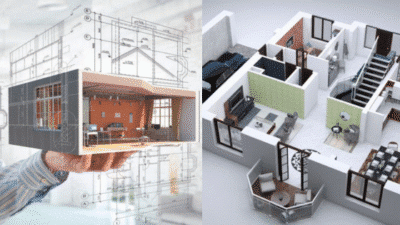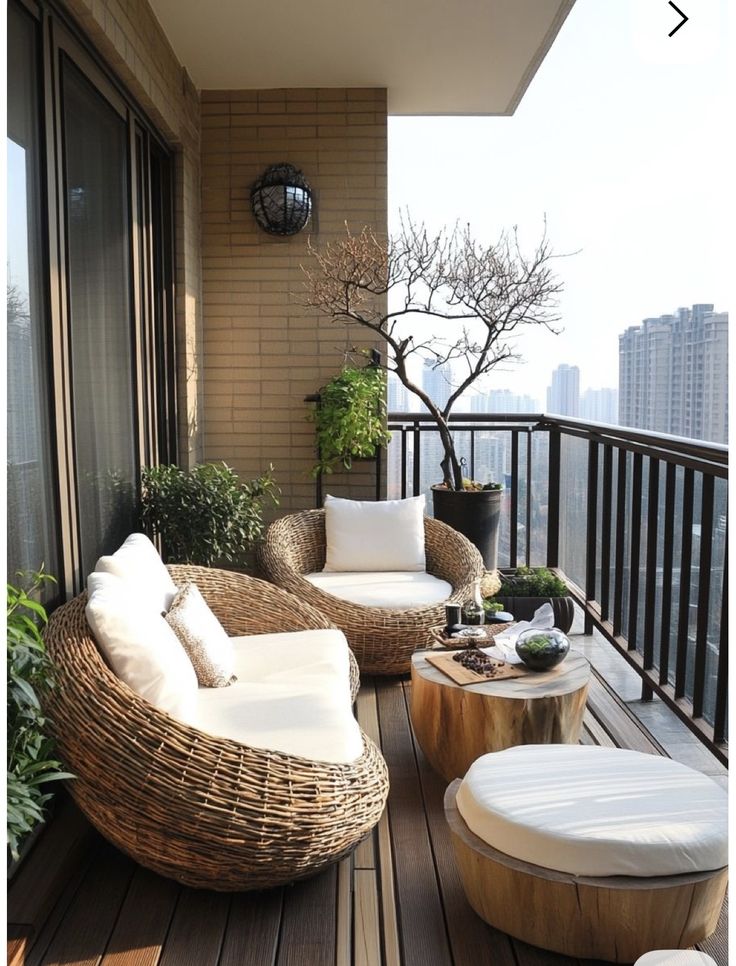
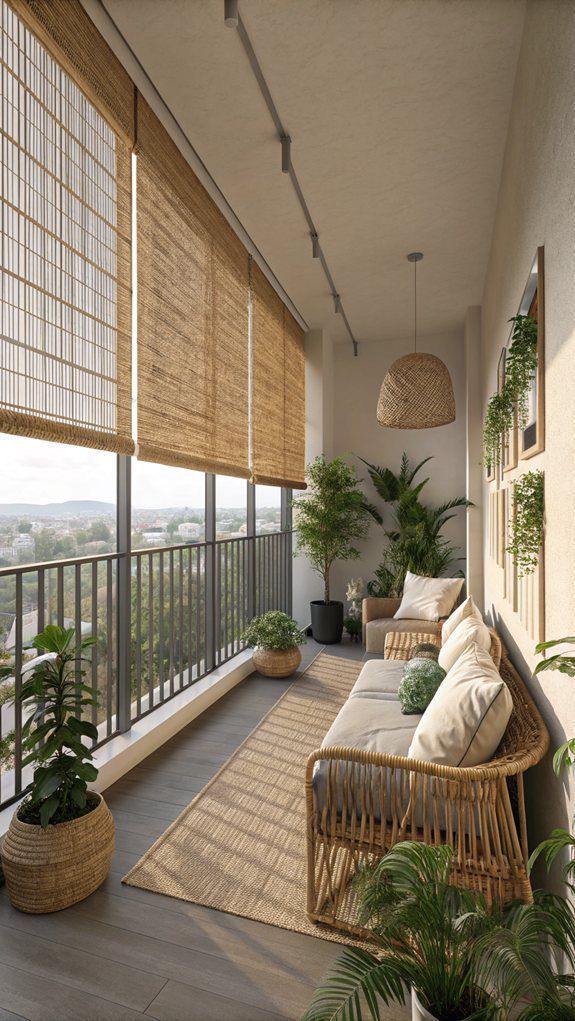
Balconies and terraces can become the best spots to enjoy summer days and evenings. Creating a comfortable and stylish outdoor space is all about choosing the right furniture, lighting, and decorations that fit the area’s size and purpose.
Adding plants and soft textiles can make these spaces feel inviting and fresh. With thoughtful planning, even small balconies can turn into cozy retreats where anyone can relax or entertain guests.
Simple touches like shade options and privacy screens improve comfort and usability. These ideas help transform outdoor areas into summer havens without much hassle.
Key Takeaways
- Choosing suitable furniture makes outdoor spaces comfortable and functional.
- Adding greenery and soft textiles creates a welcoming atmosphere.
- Shade and privacy solutions enhance comfort for any balcony or terrace.
Planning Your Summer Balcony & Terrace Decor
A good plan helps use the space well and creates a relaxing summer spot. It involves checking the available space, choosing a matching style, and deciding how much money to spend.
Assessing Your Outdoor Space
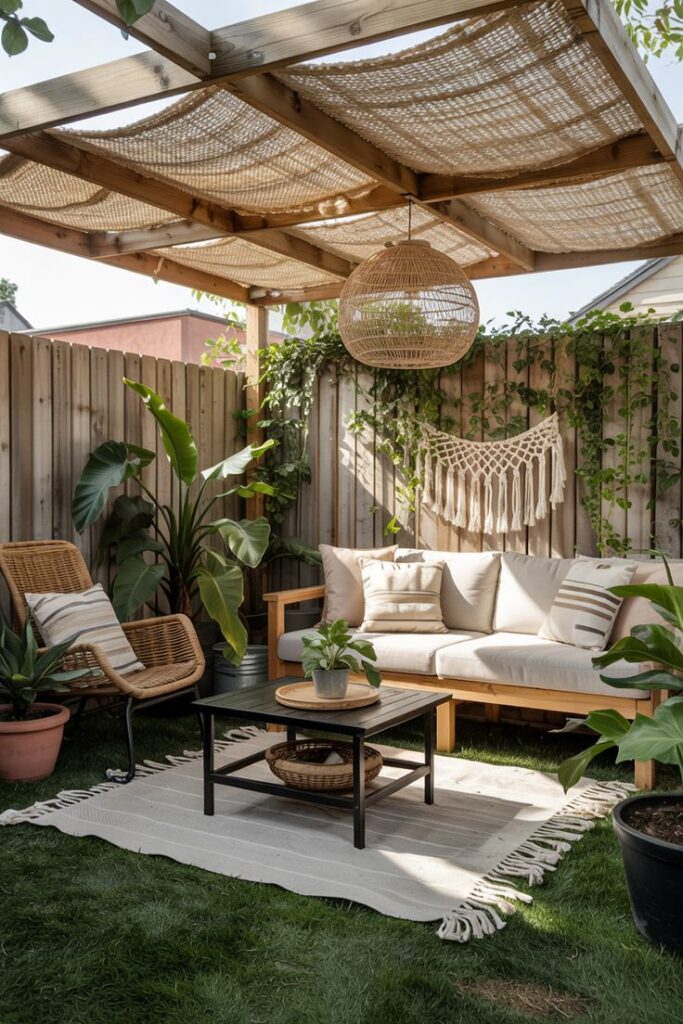
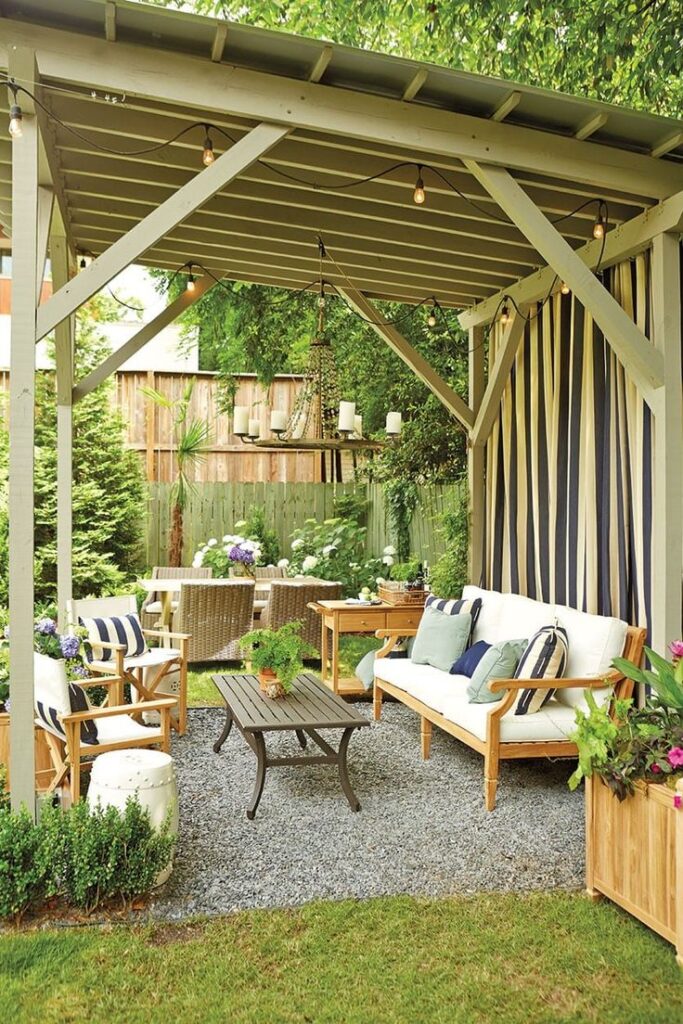
The first step is to measure the balcony or terrace. Knowing the size helps in picking the right furniture and decor that fit well without crowding.
He or she should note the direction the balcony faces. South-facing spots get more sun, so plants and materials need to handle heat. North or shaded areas may need extra lighting or plants that like less sun.
Check for any building rules about what decor is allowed. Safety is also key. For example, railings shouldn’t be blocked by tall furniture or decorations.
Selecting a Summer Theme
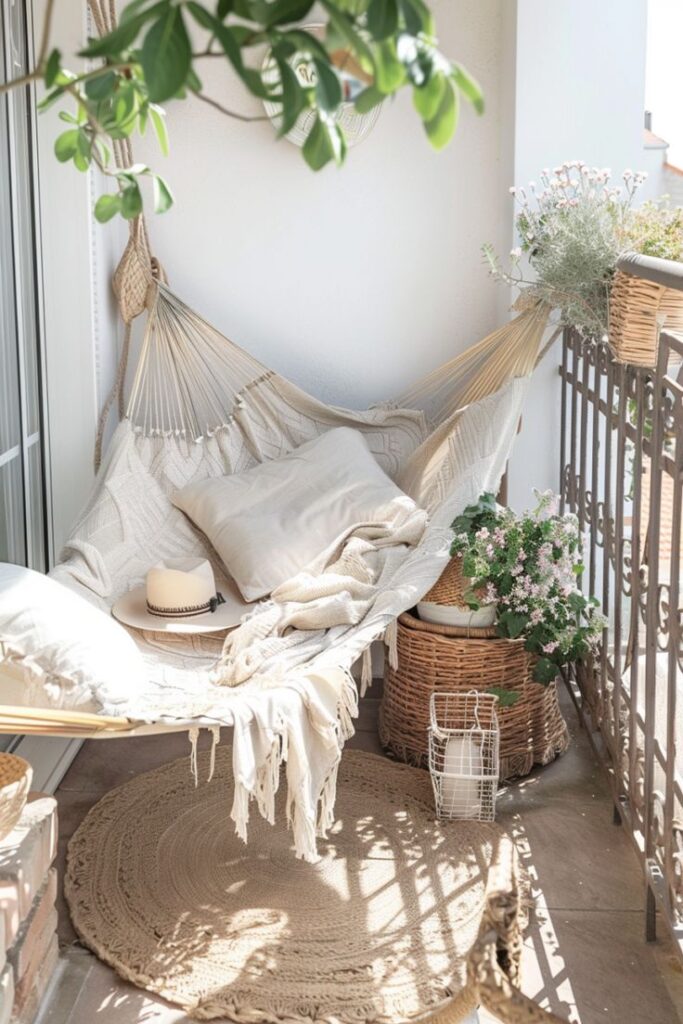
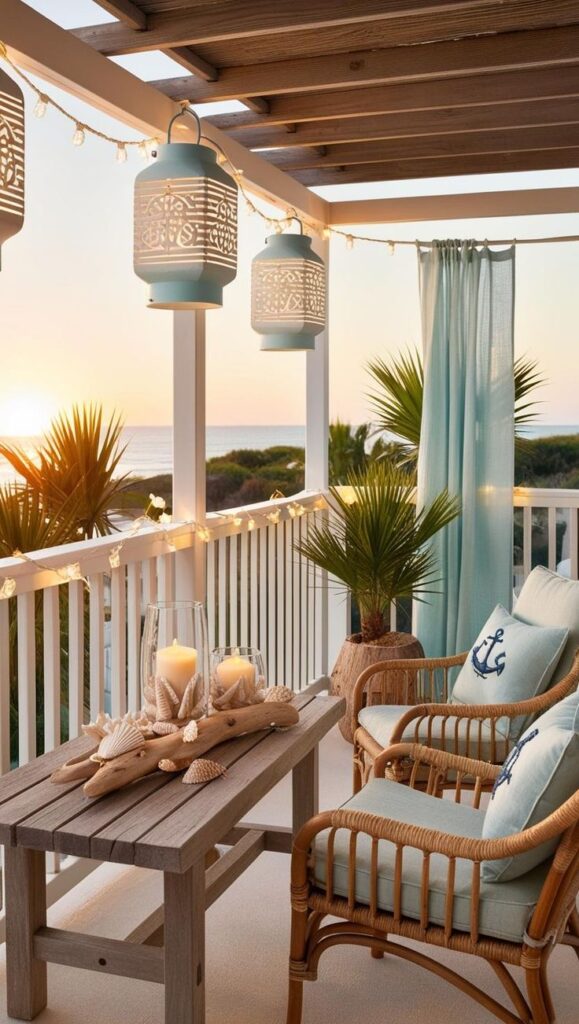
Choosing a theme sets the style and mood. Popular themes include coastal, tropical, rustic, or modern minimalist.
A coastal theme might use blues, whites, and natural fibers like jute. A tropical look favors bright colors, lots of green plants, and bold patterns.
Simple themes with fewer colors and decorations reduce clutter. The theme should suit the occupant’s taste and blend with the home’s overall style.
Setting a Budget
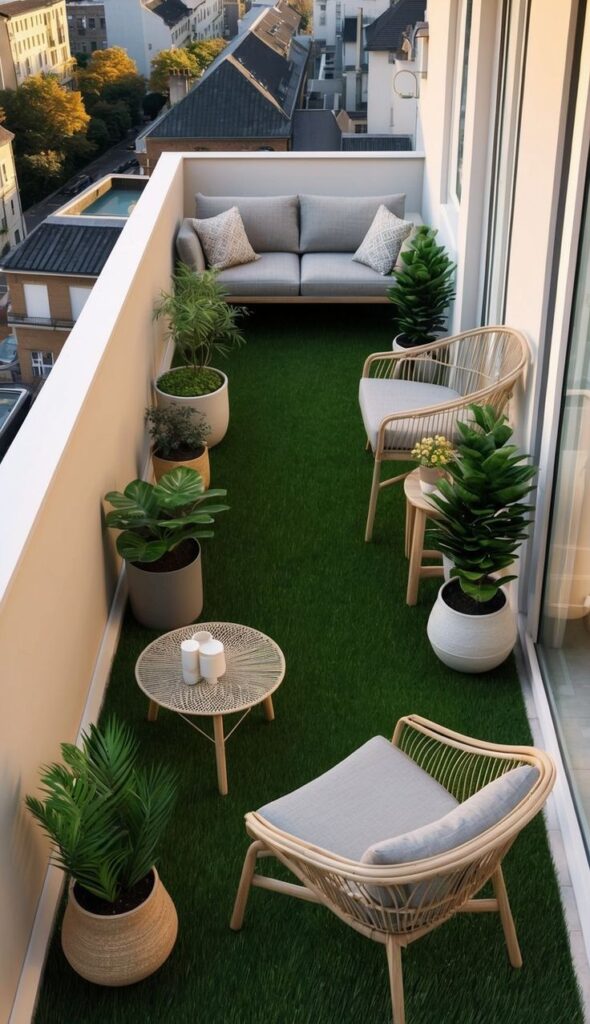
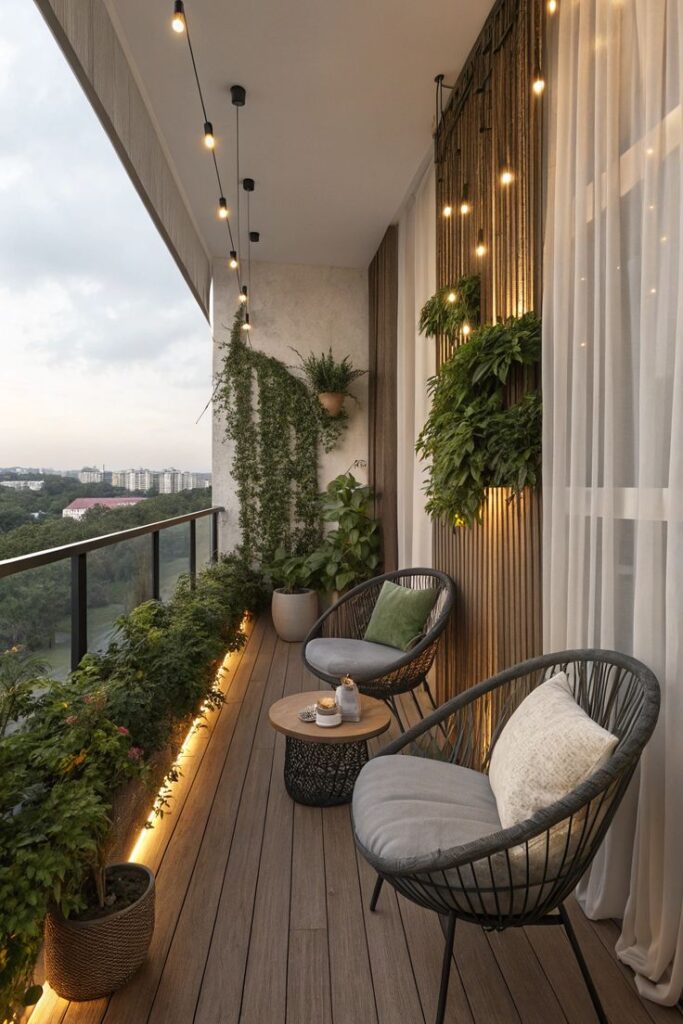
Deciding on a budget early keeps spending on track. It helps prioritize what to buy first, like seating or lighting.
Break the budget into parts, for example:
| Item | Percentage of Budget |
|---|---|
| Furniture | 50% |
| Plants | 20% |
| Lighting | 15% |
| Accessories | 15% |
He or she should look for sales or DIY ideas to save money. It’s better to start with a few key pieces and add more later.
Outdoor Furniture Selection
Selecting the right outdoor furniture means thinking about how it handles weather, fits the space, and stays comfortable over time. Durability, size, and ease of use all play key roles in making the best choice for balconies and terraces.
Choosing Weather-Resistant Materials
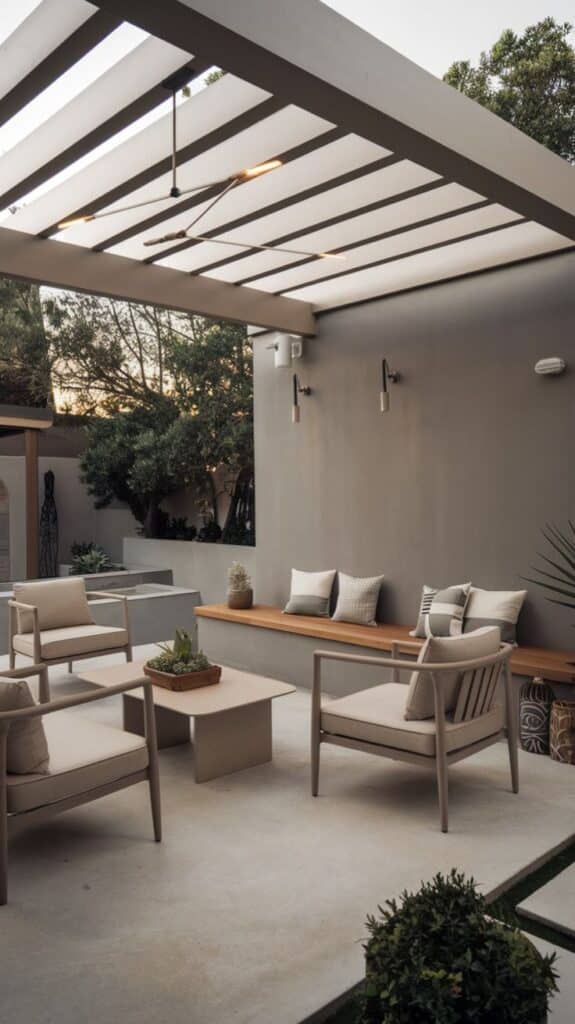
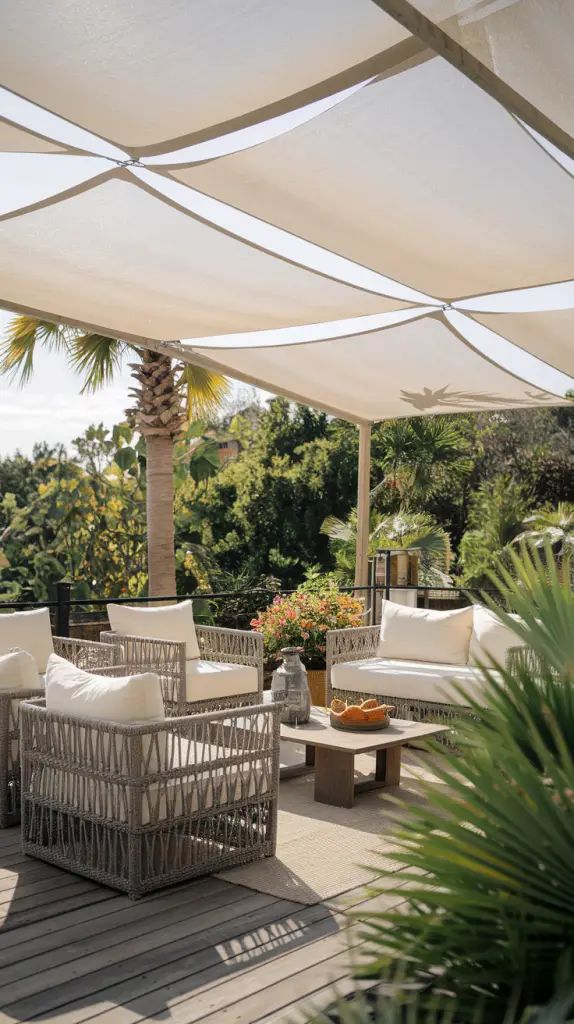
Furniture for outdoor spaces must handle sun, rain, and wind without damage. Materials like teak, aluminum, and synthetic wicker are popular because they resist fading, rust, and mold.
Teak is strong and ages well but can be costly. Aluminum is light, rustproof, and requires little upkeep. Synthetic wicker offers a natural look but dries quickly after rain.
Avoid wood that’s untreated or metal that easily rusts. Adding cushions made from quick-drying, UV-resistant fabric helps keep the furniture looking good longer. Covers can protect pieces during bad weather.
Space-Saving Furniture Ideas
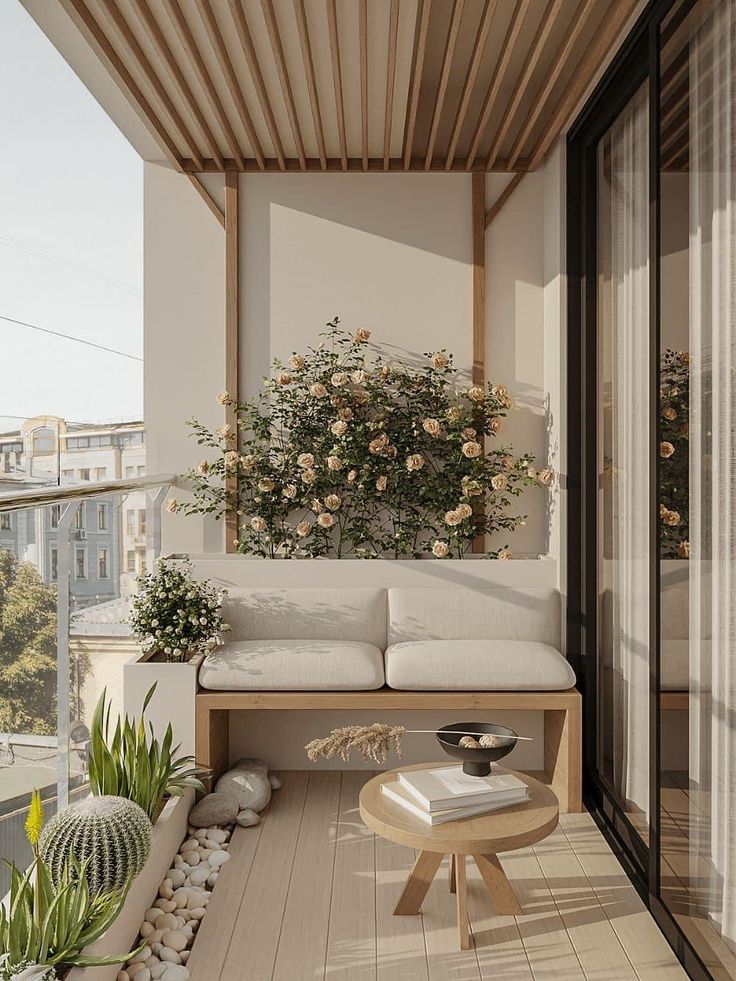
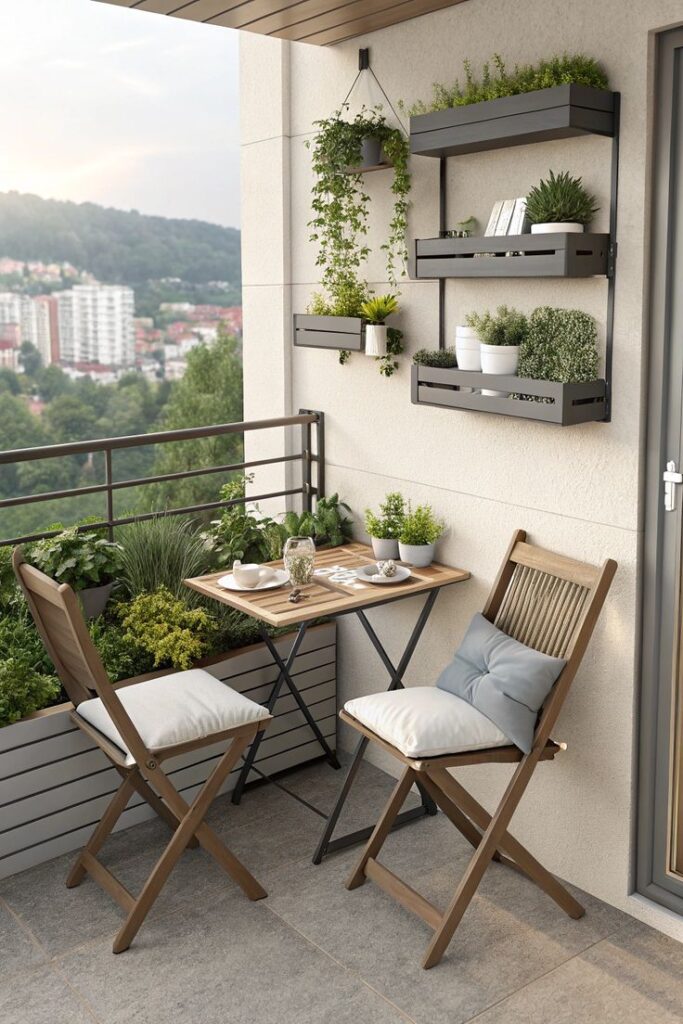
Balconies and terraces often have limited space, so small, multi-use furniture works best. Folding chairs and tables make it easy to store or change the layout.
Stackable stools and benches provide seating without taking up much room when not in use. Wall-mounted tables are great for narrow spaces where floor space is tight.
Furniture with built-in storage helps keep items like cushions or gardening tools tucked away. Choose pieces that don’t overcrowd the area but still allow movement.
Comfort and Functionality
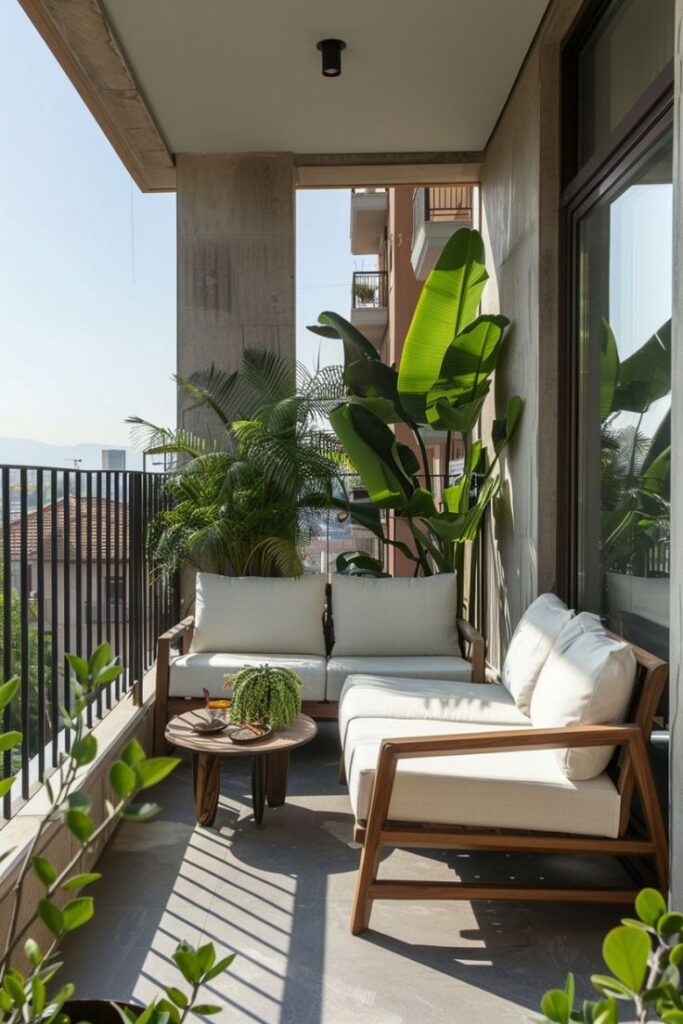
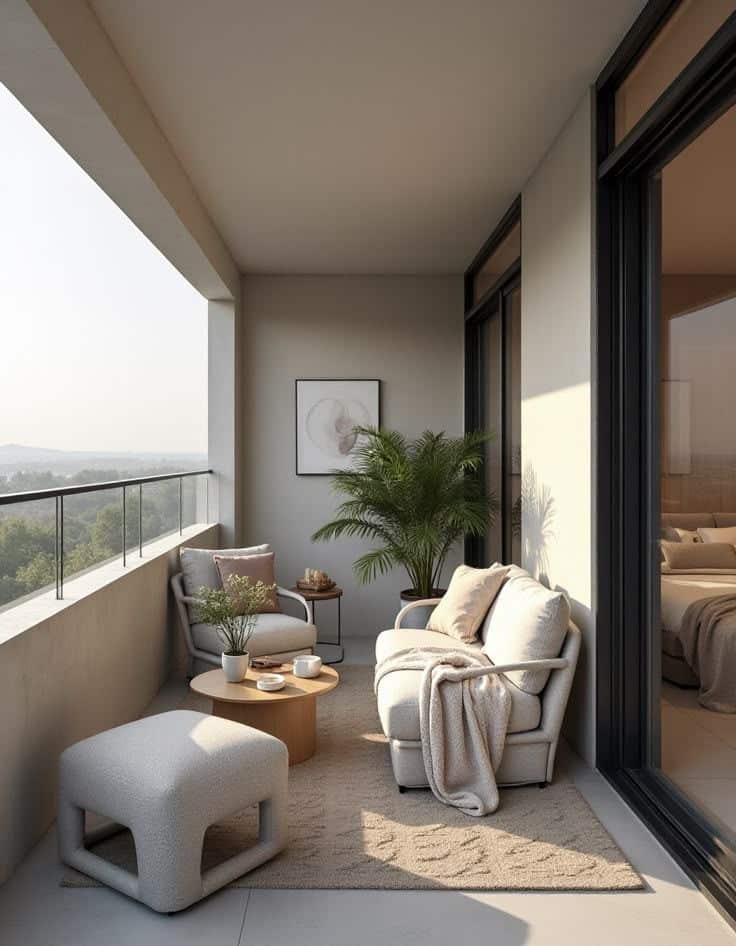
Comfort is key since outdoor furniture is for relaxing and socializing. Look for chairs with cushions that are thick but water-resistant.
Furniture should be functional, such as having adjustable backs on lounge chairs or tables with extendable leaves. Lightweight pieces make rearranging easier.
Weatherproof fabrics that feel soft improve comfort without fading. Adding footrests or side tables helps make the space more usable for meals or reading.
Color Schemes and Textiles
Choosing the right colors and textiles can transform a balcony or terrace into a comfortable, stylish space. Thoughtful use of colors, fabrics, and layering creates a inviting atmosphere that suits outdoor living.
Popular Summertime Color Palettes
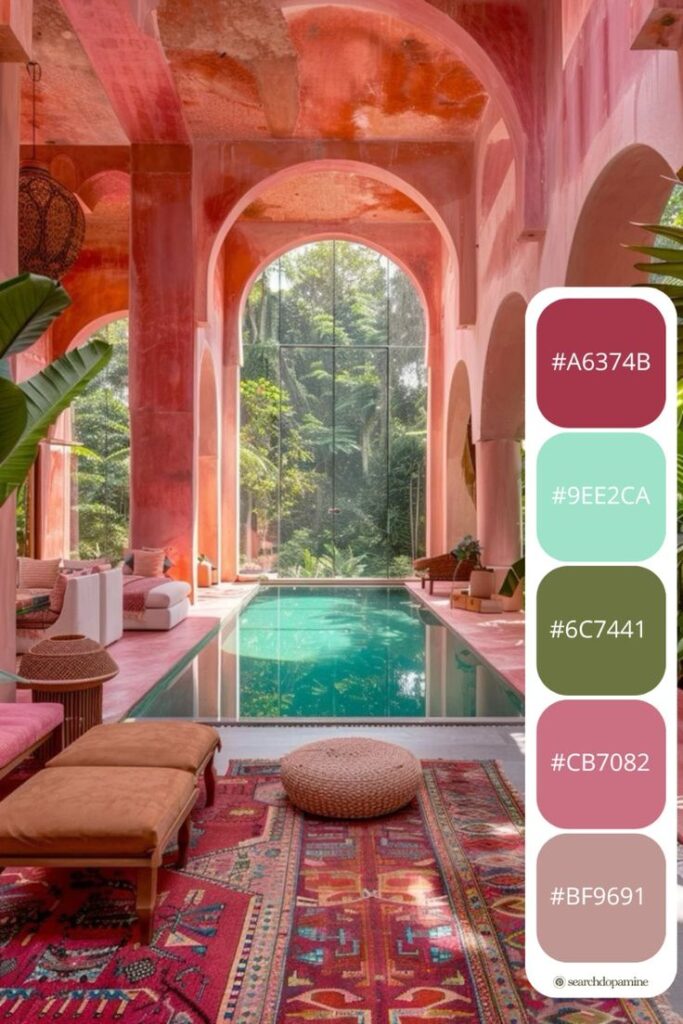
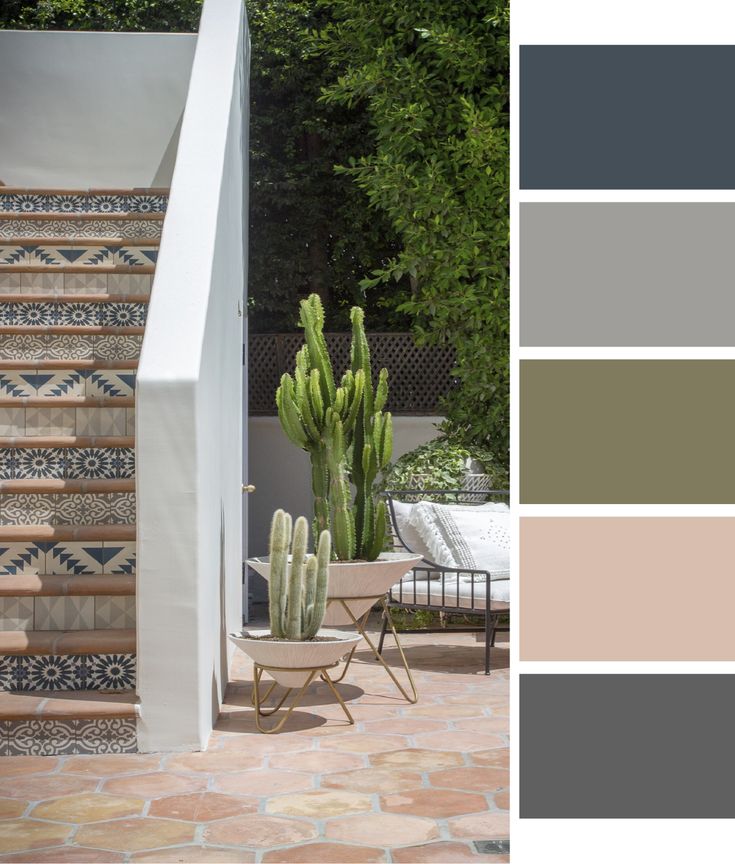
Light and bright colors are common for summer outdoor spaces. Shades like aqua, coral, lemon yellow, and soft pink give a fresh, lively feel. Earth tones mixed with greens or blues can offer a calm, natural vibe.
Using contrasting colors works well, such as navy with orange or teal with cream. This adds visual interest without overwhelming the space.
Neutral bases like beige or gray balance these bright colors. They make accents pop and keep the area from feeling too busy.
Selecting Outdoor Fabrics
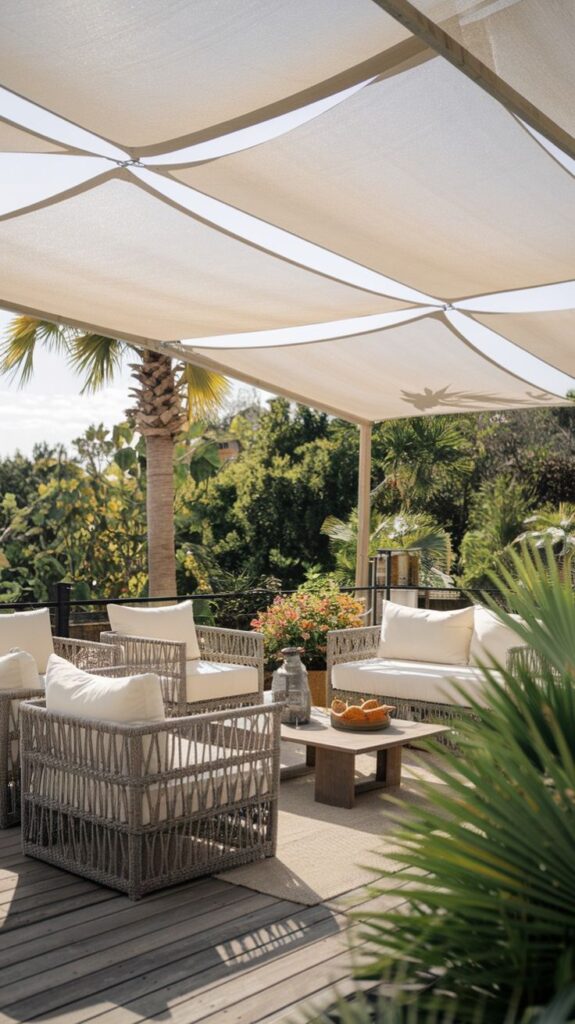
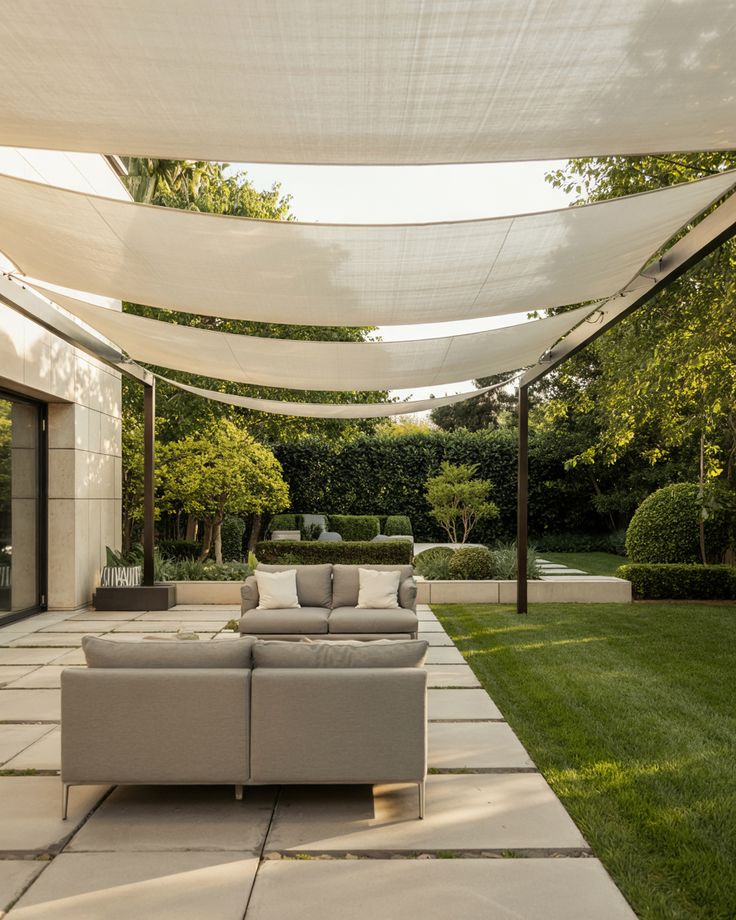
Outdoor fabrics should be weather-resistant and easy to clean. Materials like solution-dyed acrylic and polyester resist fading and repel water. These fabrics hold up well under sun and rain.
Look for textures that feel soft but dry quickly. Mesh, canvas, and treated cotton blends work well for cushions and covers.
It’s important to choose fabrics that match the style and color scheme. Light colors reflect heat and are cooler, while darker fabrics can absorb warmth.
Layering Rugs and Cushions
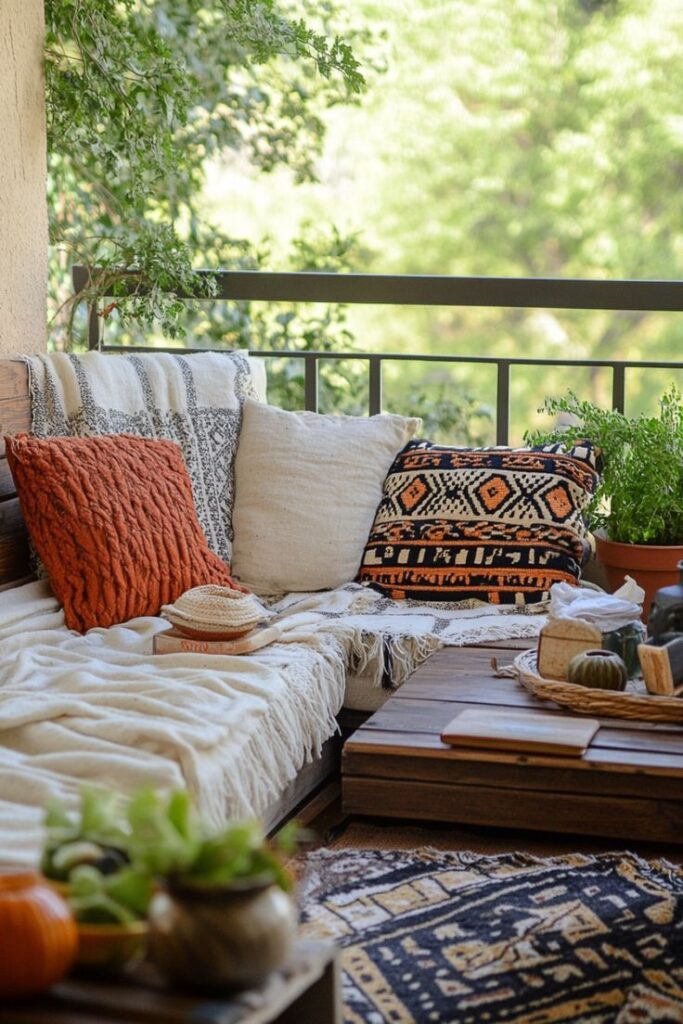
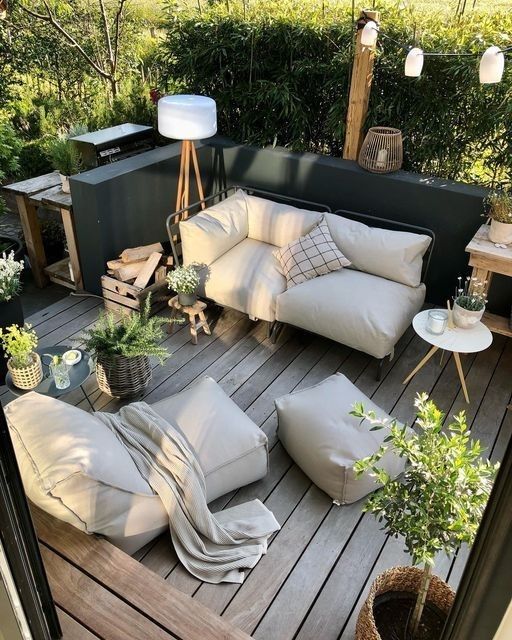
Layering with rugs and cushions adds comfort and style. A large outdoor rug defines the seating area and protects feet from hot surfaces.
Place cushions in different sizes and textures to create depth. Mixing solid colors with patterns adds interest without clutter.
Choose washable rugs and removable cushion covers for easy cleaning. This keeps the space fresh, especially after summer weather events.
Lighting for Ambiance
Lighting can change the whole feel of a balcony or Terrace Decor Ideas. It helps create a cozy place to relax or entertain. Different types of lighting work for different needs, from soft mood lighting to brighter task lights.
String Lights and Lanterns
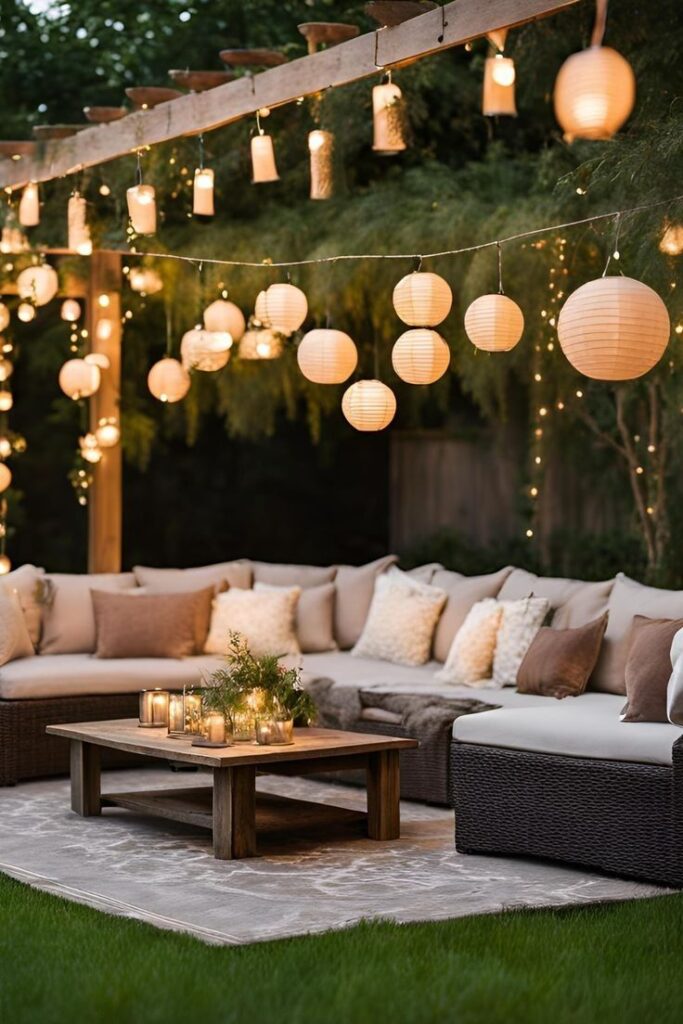
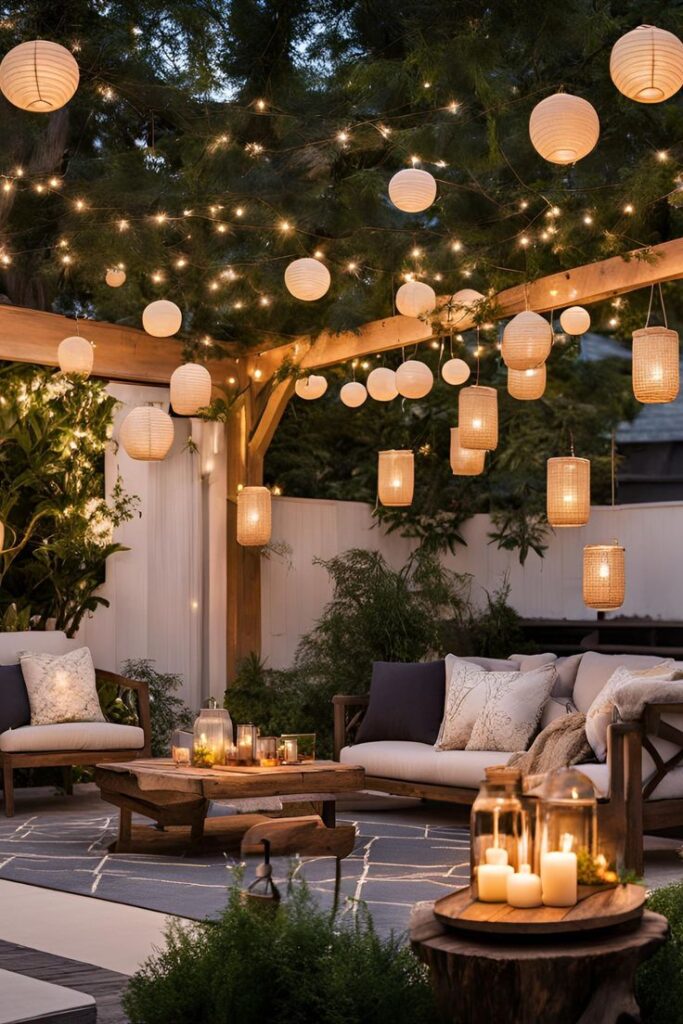
String lights add a warm, gentle glow that makes outdoor spaces feel welcoming. They can be hung around railings, ceilings, or plants. LED string lights are popular because they use less energy and last longer.
Lanterns come in many styles, such as metal, glass, or paper. They can be hung or placed on tables and floors. Solar or battery-operated lanterns free users from needing a power outlet. Both string lights and lanterns set a relaxed mood for evenings.
Solar Lighting Options
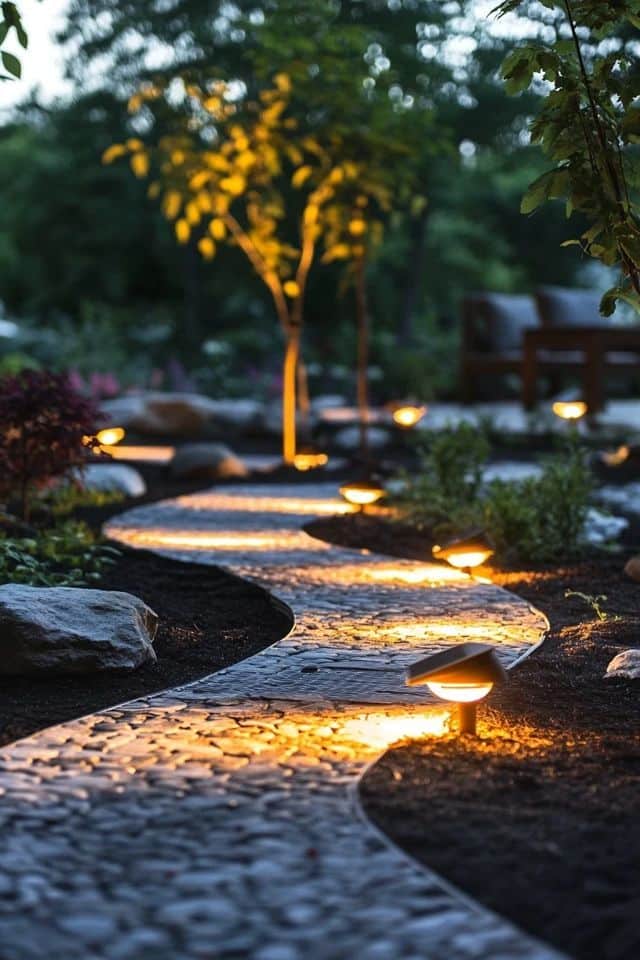
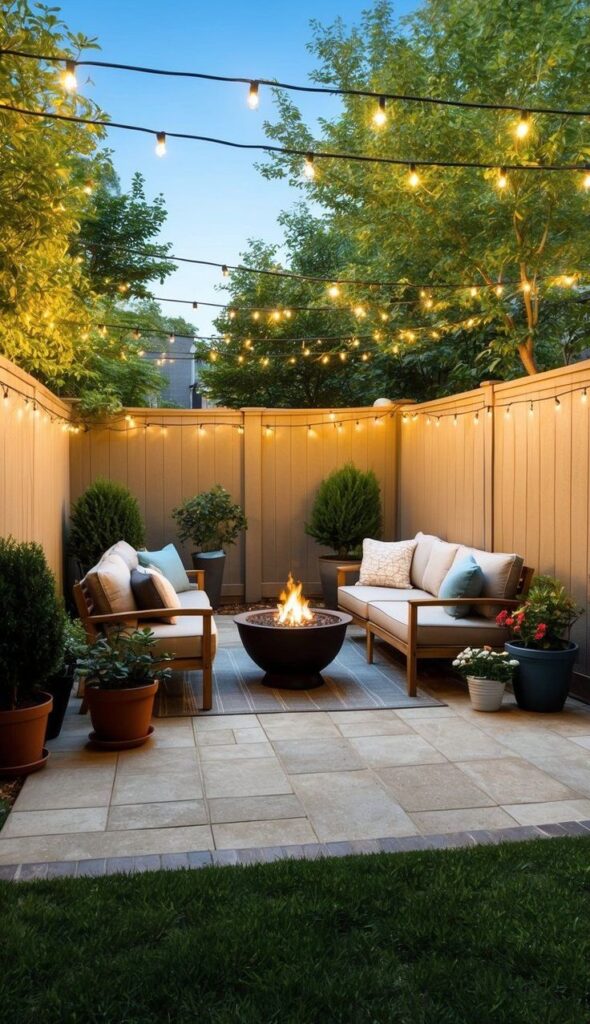
Solar lights are easy to install since they don’t require wiring. They charge during the day and light up automatically at night. This option saves electricity and lowers bills.
Solar garden stakes, wall lights, and post caps brighten dark corners or paths. For balconies, small solar lamps can be placed on tables or hung from hooks. They are weather-resistant and need minimal maintenance, making them good for busy people.
Task Lighting for Evenings
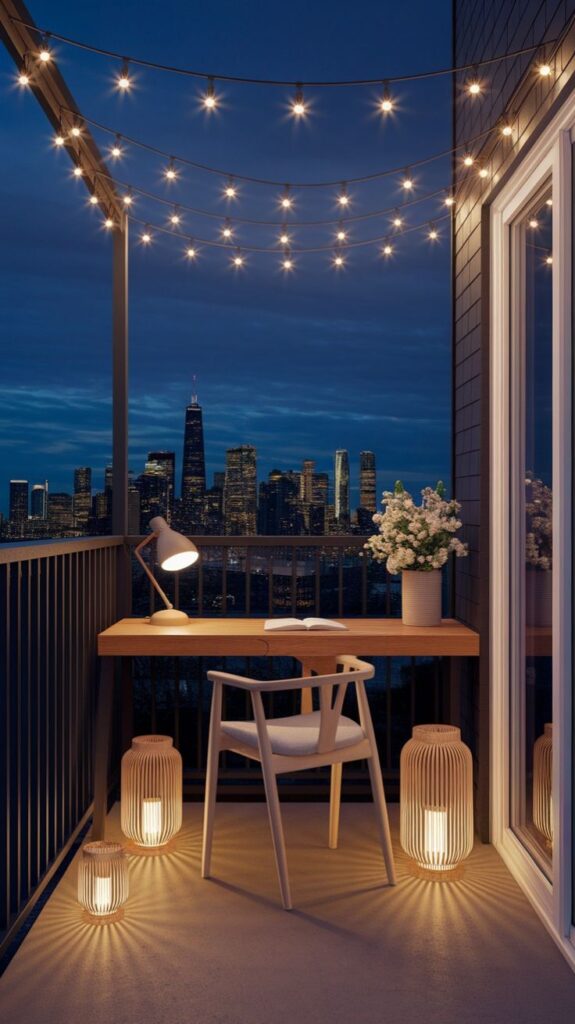
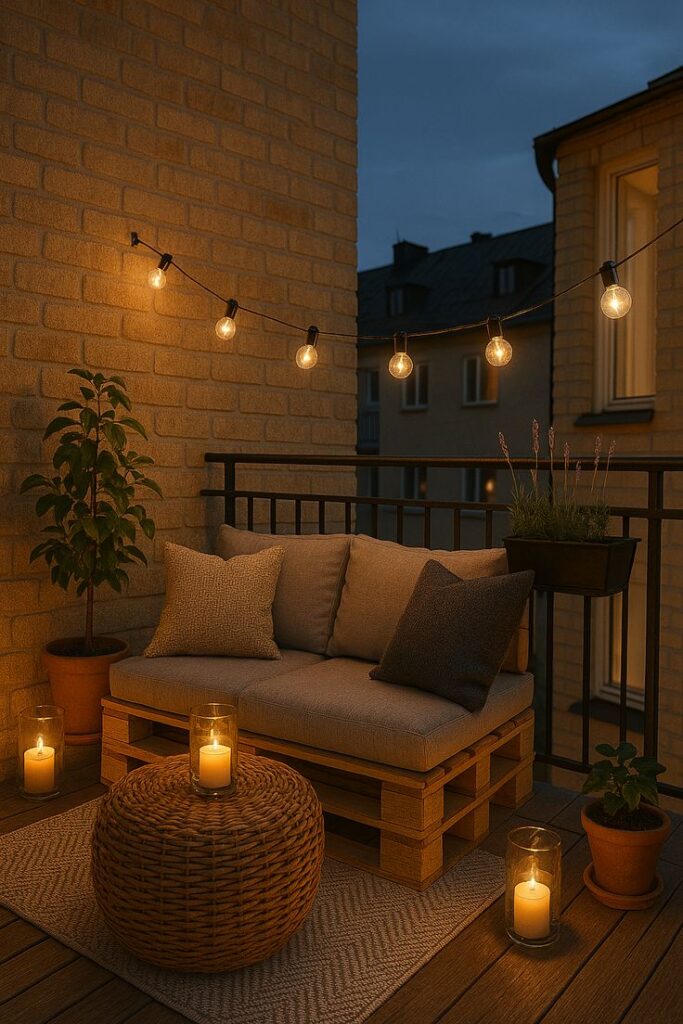
Task lighting focuses on areas where people need more light, like reading spots or dining tables. It should be brighter than ambient lighting but not harsh.
Clip-on lamps, adjustable floor lamps, or LED desk lights work well. They allow precise light placement. Using warm white bulbs avoids a cold or industrial look. Task lighting supports activities without overpowering the space’s relaxed feel.
Incorporating Plants and Greenery
Plants add color, texture, and life to balconies and terraces. Choosing the right containers, using vertical space, and picking easy-to-care-for plants can make small outdoor areas feel fresh and inviting.
Container Gardening Ideas
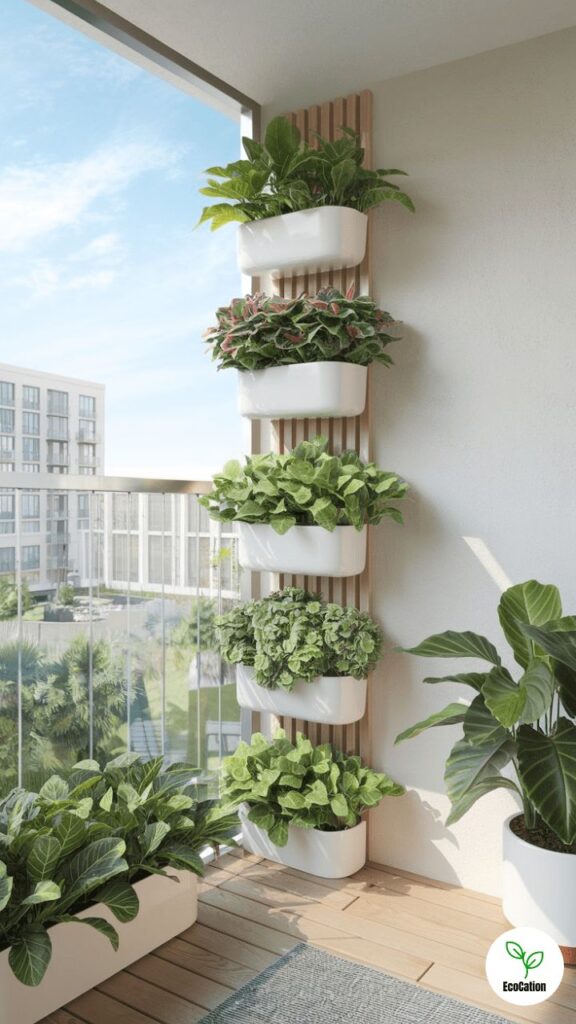
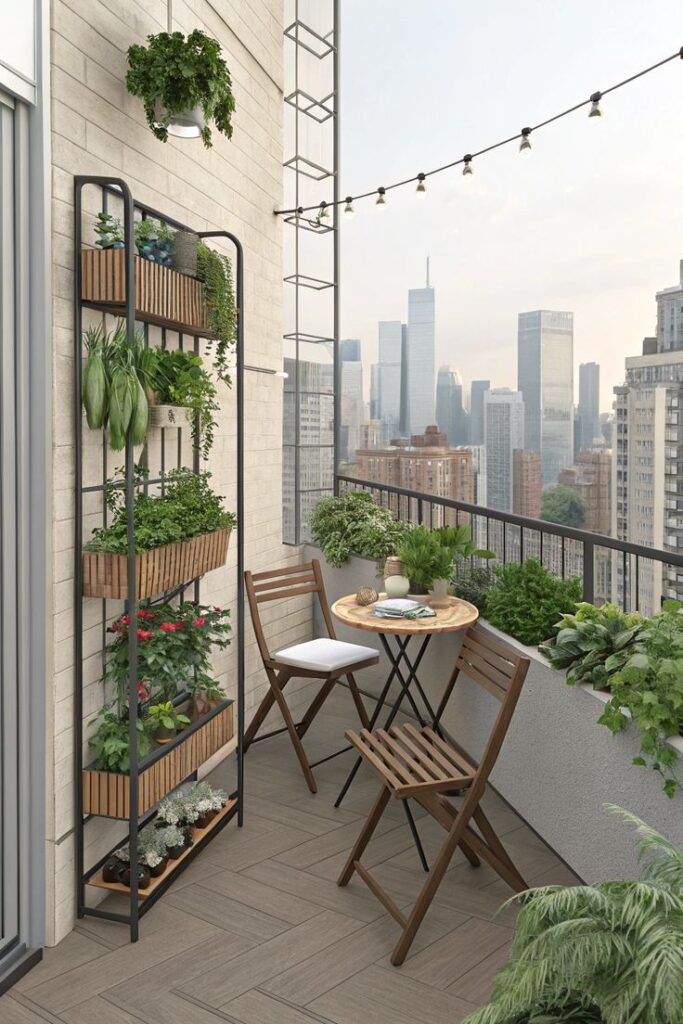
Containers come in many shapes and sizes, allowing people to customize their space. Using terracotta pots, wooden boxes, or hanging baskets can create visual interest.
Grouping pots with similar plants or colors helps create a neat look. It’s important to pick containers with good drainage to keep plants healthy.
Mixing herbs like basil or mint with flowers can serve both decoration and use. Lightweight pots work best for upper balconies to avoid extra weight stress.
Vertical Gardens and Trellises
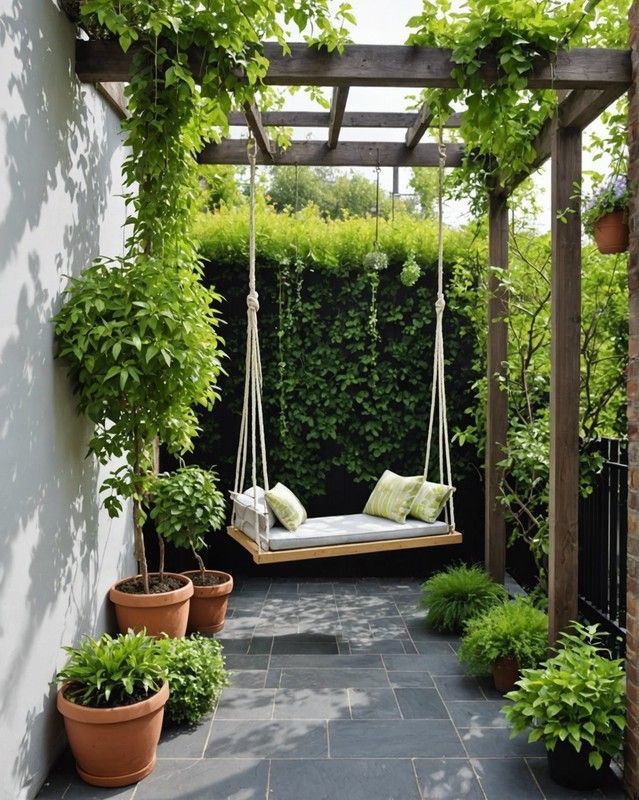
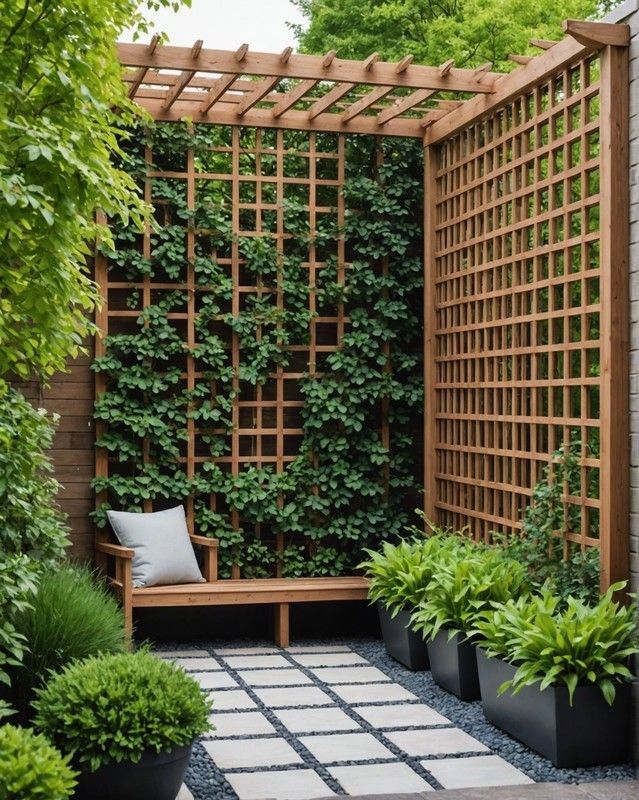
Vertical gardens save space by growing plants up walls or railings. Trellises support climbing plants like ivy, morning glories, or beans.
Using shelves or pocket planters on the wall gives room for more plants. Vertical gardens also make balconies look fuller without taking floor space.
Trellises should be sturdy and fit the balcony style. They can also add privacy when covered with thick foliage, blocking neighboring views.
Low-Maintenance Summer Plants
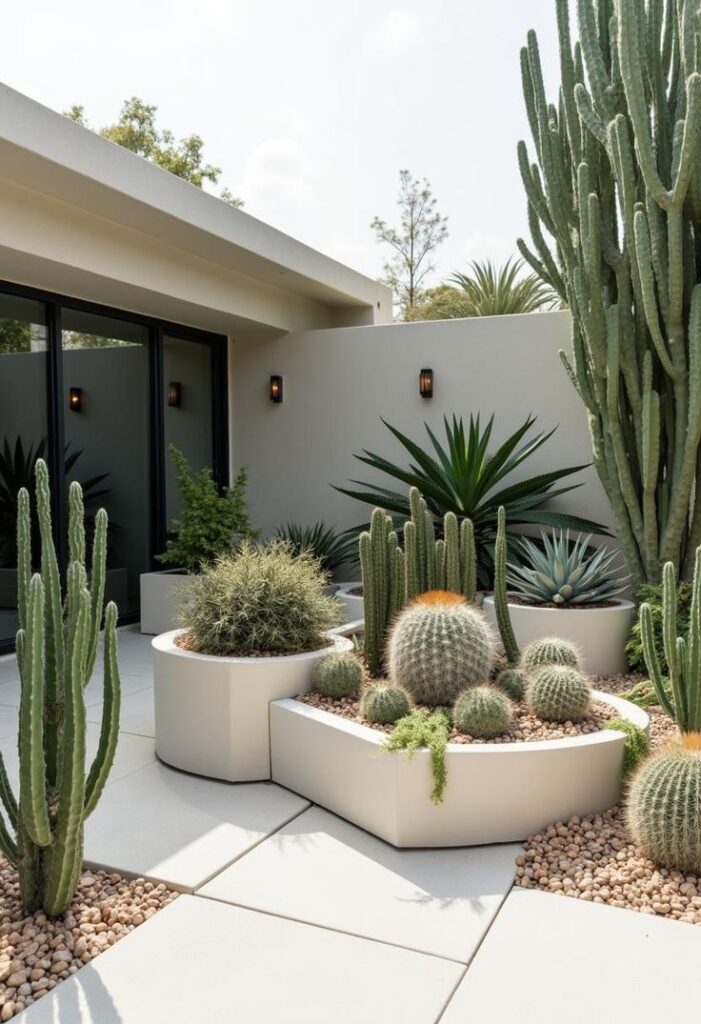
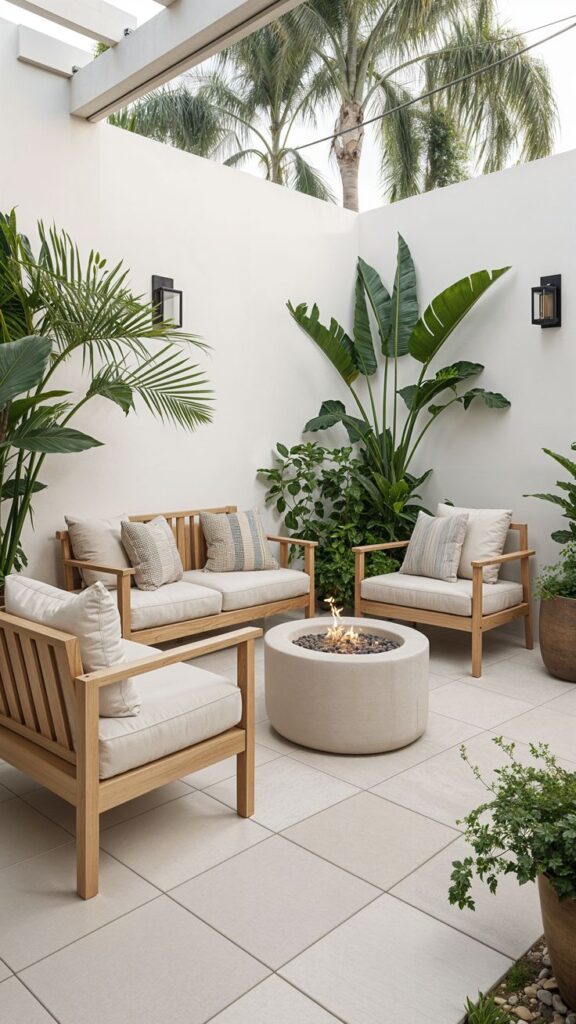
Choosing plants that need less water and care simplifies summer decor. Succulents, aloe vera, and snake plants require little watering.
Herbs like rosemary, thyme, and lavender survive well in heat and dry conditions. They also smell good and can be used in cooking.
Annuals like marigolds and zinnias add bright color but need regular watering. For shade, ferns and begonias grow well with minimal sun and effort.
Accessorizing Your Outdoor Space
Accessorizing an outdoor balcony or terrace helps create a functional and inviting area. Choosing the right accents, tableware, and planters can transform the space and improve comfort and style.
Outdoor Decor Accents
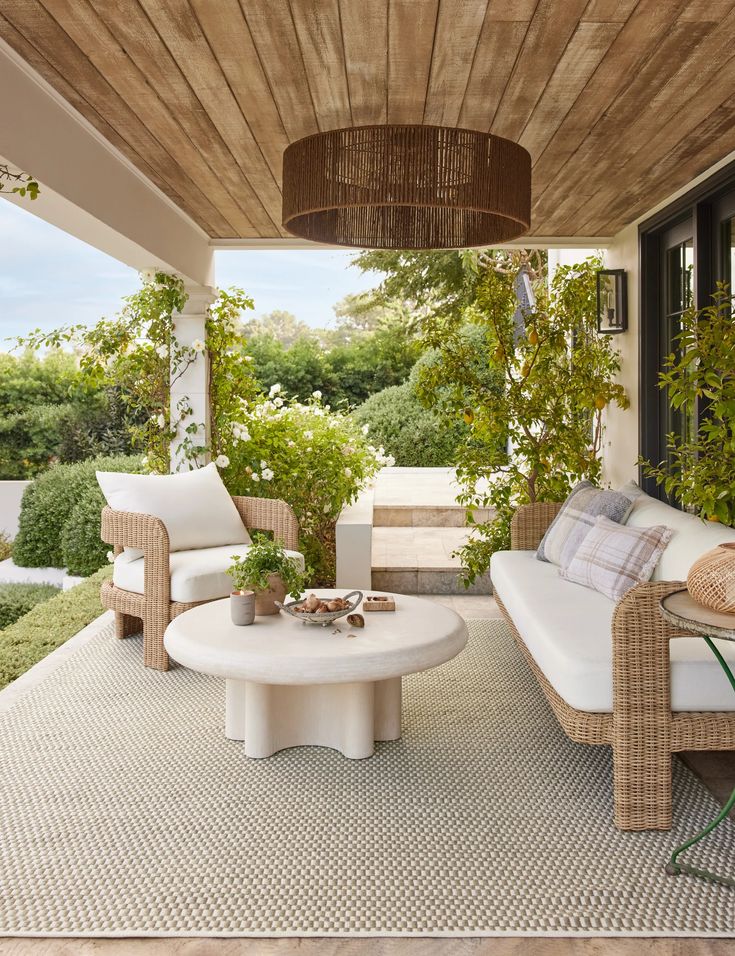
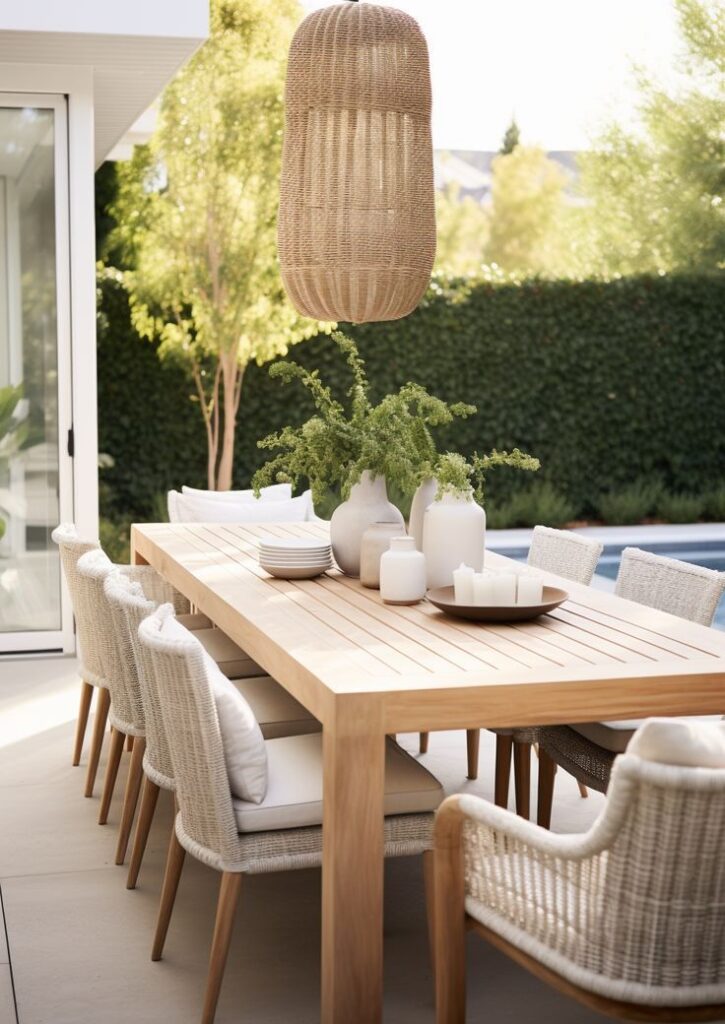
Outdoor decor accents include rugs, cushions, and lighting that boost comfort and atmosphere. A weather-resistant rug adds color and defines the seating area while protecting the floor from scratches.
Cushions made from waterproof fabric offer comfort and are easy to clean. Choose bright colors or patterns to enliven the space.
String lights or solar lanterns provide soft lighting after dark. They create a cozy feel without needing electrical outlets.
Seasonal Tableware
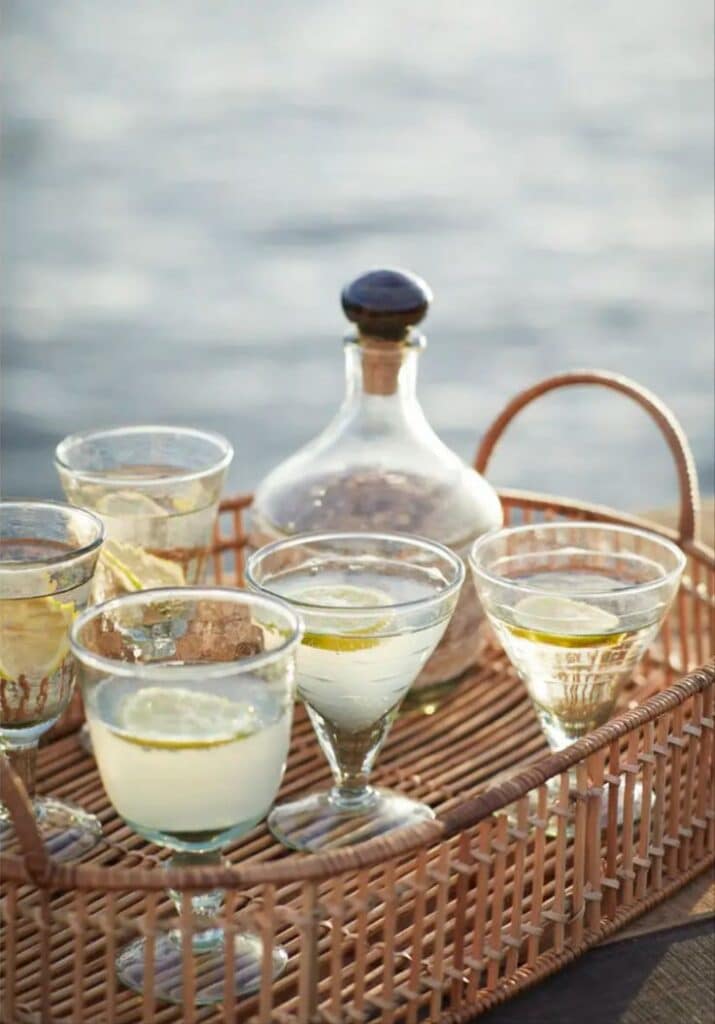
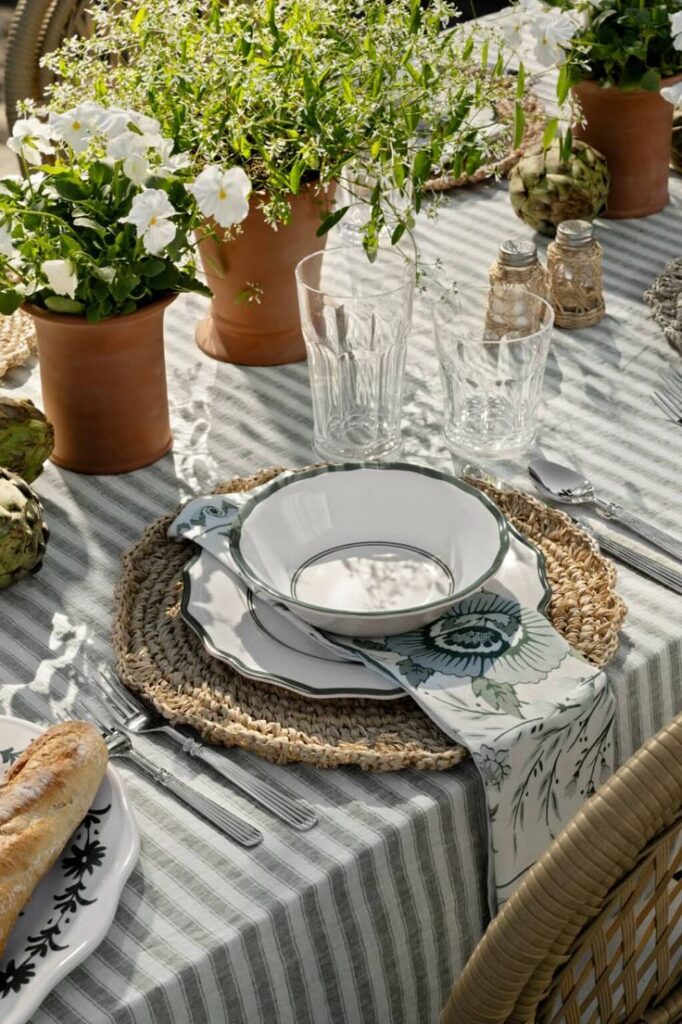
Using seasonal tableware can make outdoor dining more enjoyable. Melamine or acrylic dishes are good choices because they are durable and won’t break easily.
Look for plates and cups with summery prints like florals or tropical themes. These designs add a fresh look during warm months.
Serving trays made of bamboo or lightweight metal help carry food and drinks safely outdoors. They also make cleanup easier.
Decorative Planters
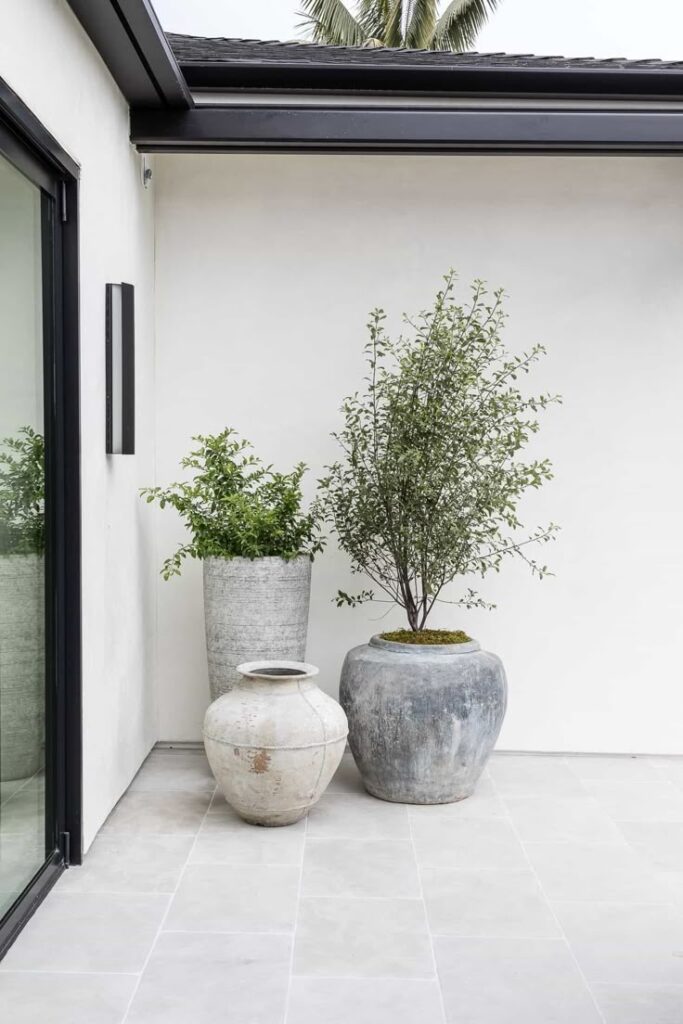
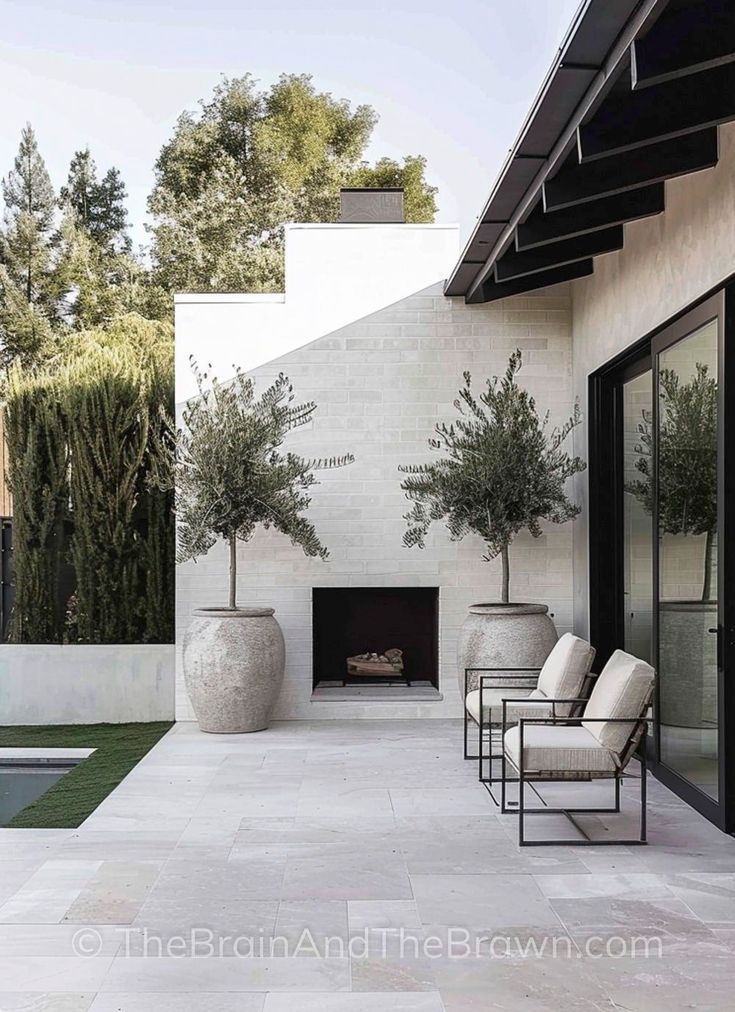
Decorative planters add life and color while fitting the space size and style. Lightweight materials like plastic or resin are easier to move but still look nice.
Choose planters with built-in drainage holes to keep plants healthy. Grouping different sizes and shapes creates visual interest.
Plant herbs, flowers, or small shrubs that thrive in summer sun. This approach gives greenery and a practical element for cooking or fragrance.
Creating Shade and Privacy
Balconies and terraces benefit from methods that block direct sunlight and provide seclusion from neighbors. Options vary from adjustable structures to natural barriers that enhance comfort and style.
Umbrellas and Shade Sails
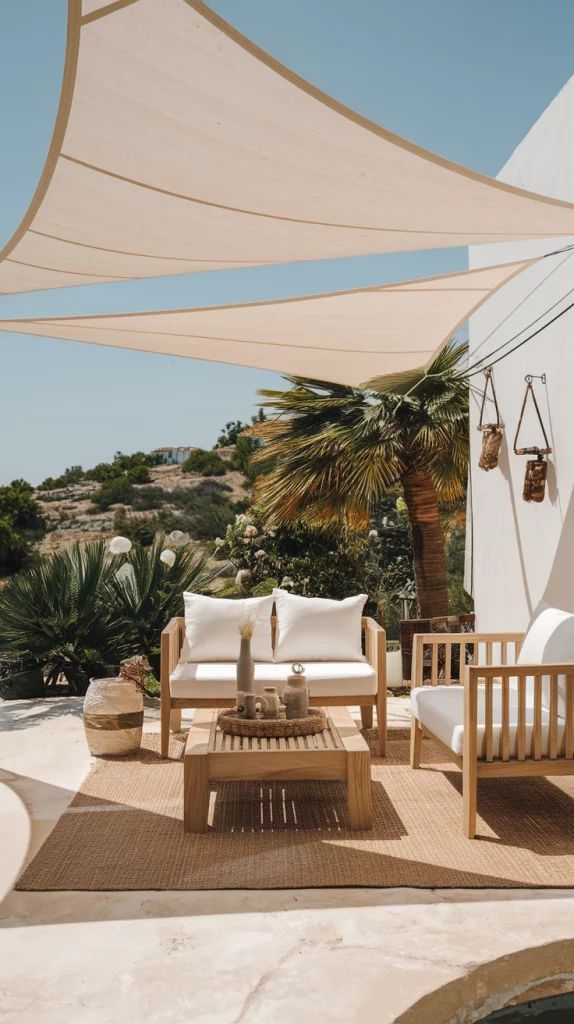
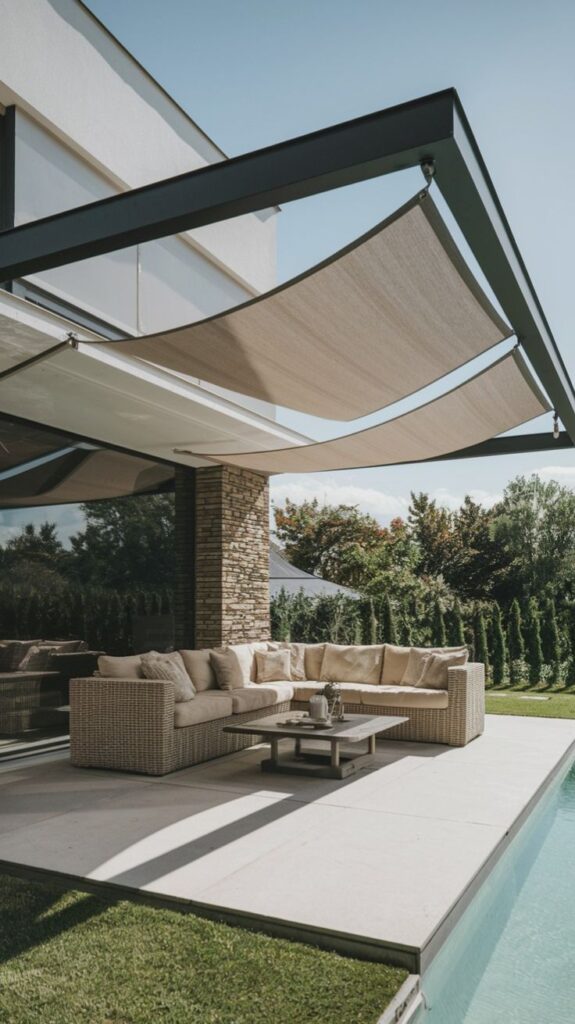
Umbrellas are a common choice for shade. They come in different sizes and shapes, like round or square, and can be moved easily. Some have tilting features to block the sun as it moves.
Shade sails are fabric panels that attach to walls or poles. They cover larger spaces and offer a modern look. They also allow airflow, which keeps the area cool.
Both umbrellas and shade sails protect against UV rays. It is important to choose sturdy materials that resist wind and sun damage for long-lasting use.
Outdoor Curtains and Screens
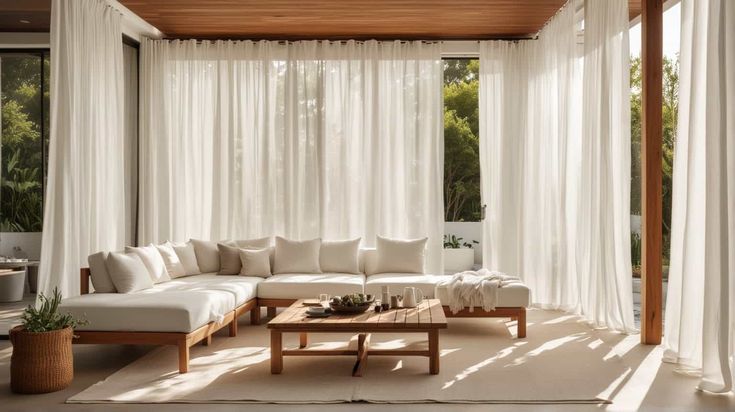
Outdoor curtains provide flexible privacy and shade. They can be drawn closed or tied back depending on the sun’s position or privacy needs. Curtains made from weatherproof fabric resist fading and moisture.
Screens come in many forms, such as bamboo panels or metal grids. They block views from neighbors and can serve as a windbreak. Some screens support climbing plants for added greenery.
The installation of curtains and screens usually requires mounting rods or frames. These should be strong enough to hold the fabric or panels in place.
Natural Privacy Solutions
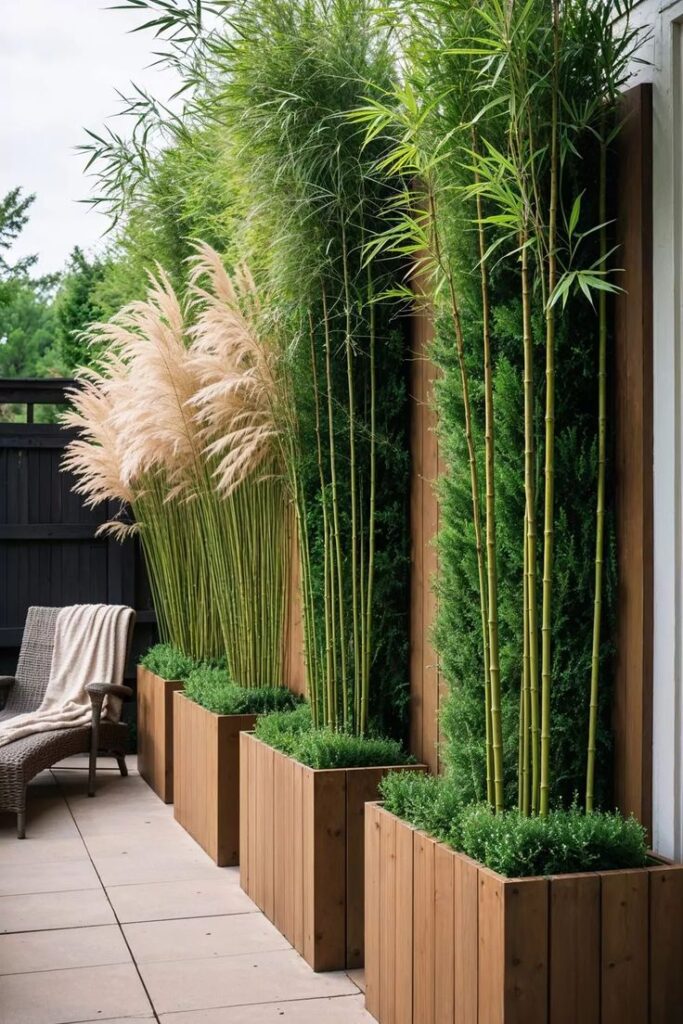
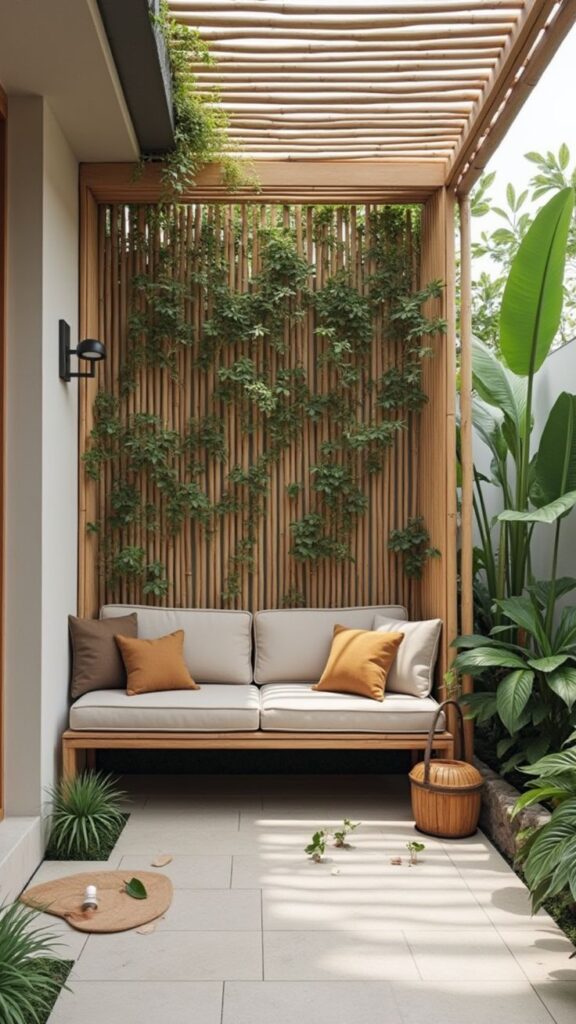
Plants are effective natural barriers on balconies and terraces. Tall potted plants like bamboo or palms create a green wall that blocks visual access and softens hard surfaces.
Climbing vines on trellises add privacy and shade without taking up much floor space. They thrive in sunny spots and reduce heat by covering walls.
Natural elements also improve air quality and add color. It’s important to pick plants suited to the balcony’s light and climate conditions for best results.
Decor Tips for Small Spaces
Maximizing limited balcony or terrace space requires smart choices in furniture and storage. Selecting items that serve more than one purpose can save room and increase usefulness. Using walls and vertical areas for storage keeps floors clear and opens up walking space.
Multi-Functional Furniture
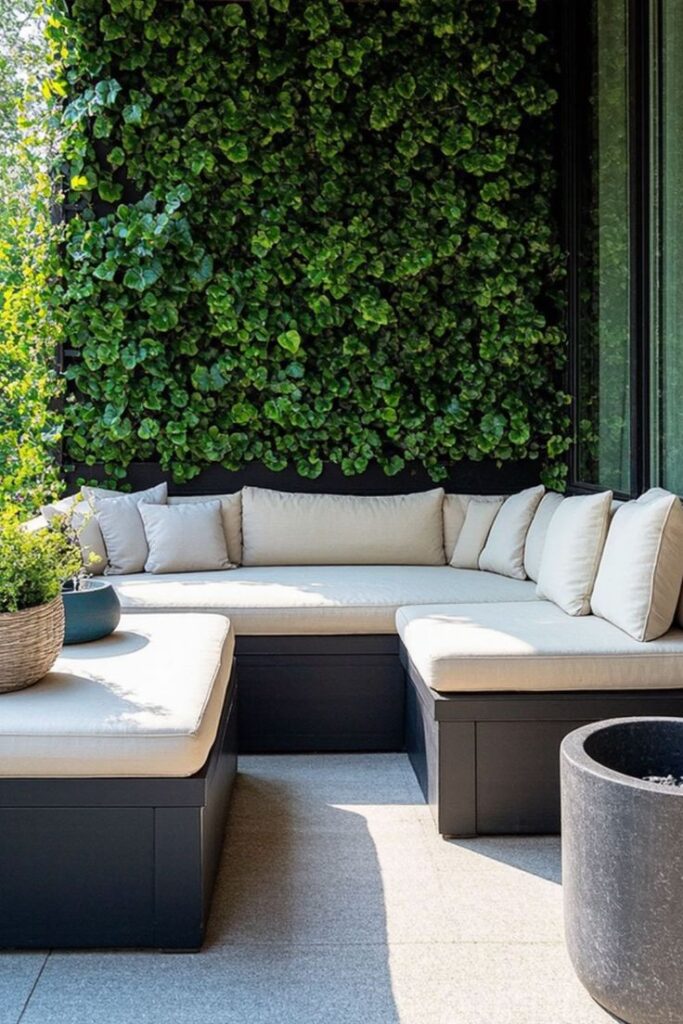
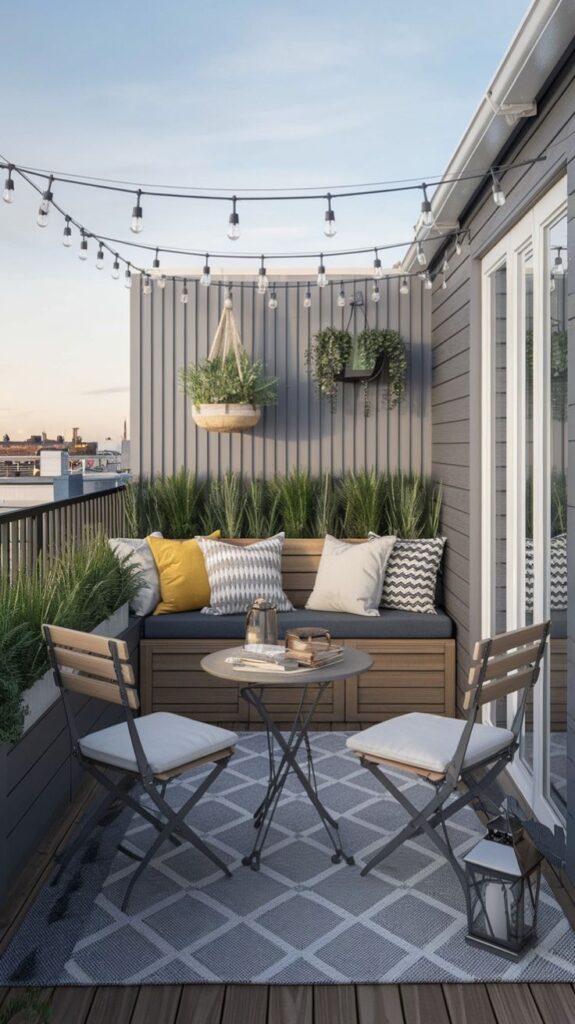
Furniture that has more than one use helps small spaces stay tidy and functional. A bench with built-in storage allows seating and a place to store cushions or gardening tools. Foldable chairs and tables can be put away easily when not in use.
Ottomans with hollow centers serve as footrests, extra seats, and storage boxes at once. A small table with shelves underneath gives space for plants or books. These pieces reduce clutter by combining multiple functions into one item.
Vertical Storage Ideas
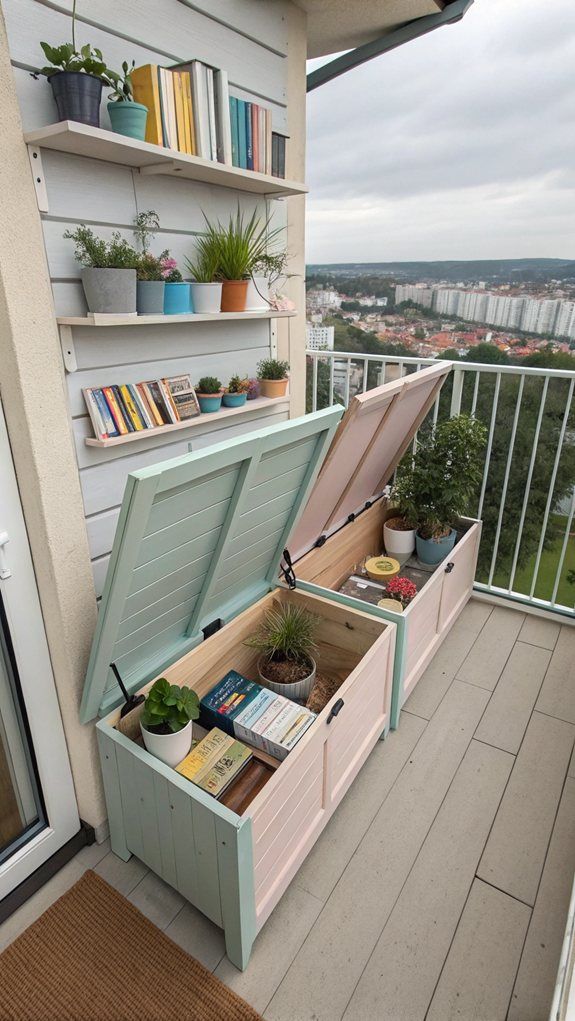
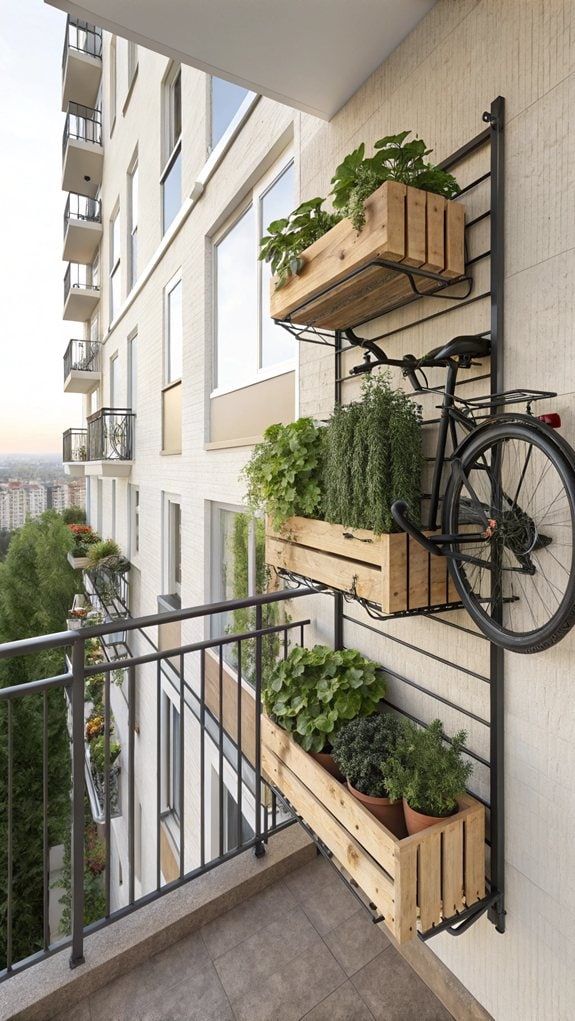
Using walls or railing space for shelves or plant holders frees floor area. Vertical planters can hold herbs, flowers, or succulents without taking up ground space. Installing hooks allows hanging lanterns, tools, or small baskets.
Wall-mounted shelves or stackable units provide extra storage without crowding the floor. Trellises let vines grow upward, adding greenery and privacy. Vertical storage keeps the area neat and uses every inch effectively.
Sustainable and Eco-Friendly Choices
Choosing eco-friendly options for balcony and terrace decor helps reduce waste and uses materials that have less impact on the environment. It’s important to focus on items that can be reused or made from natural, renewable resources.
Recycled and Upcycled Decor
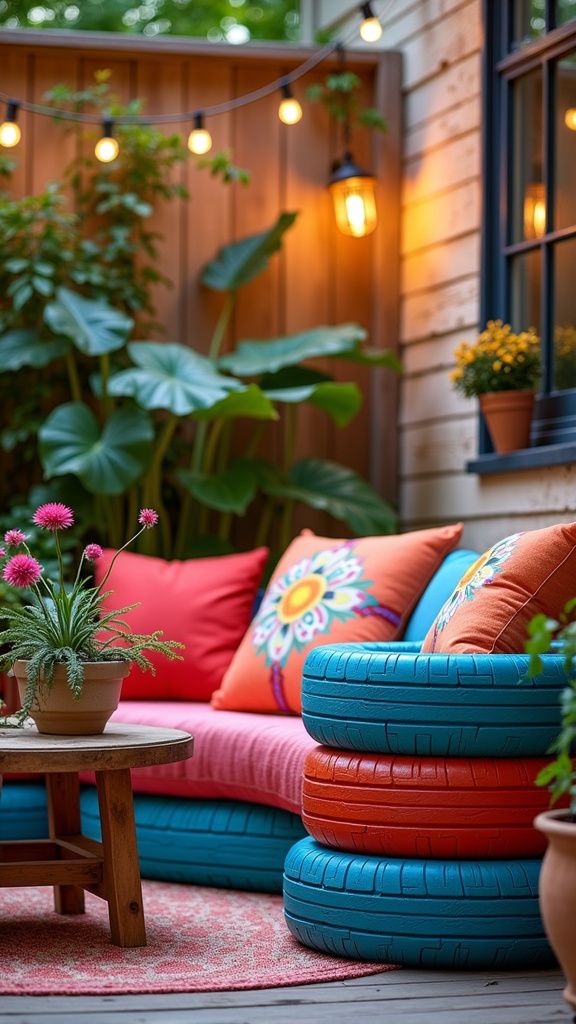
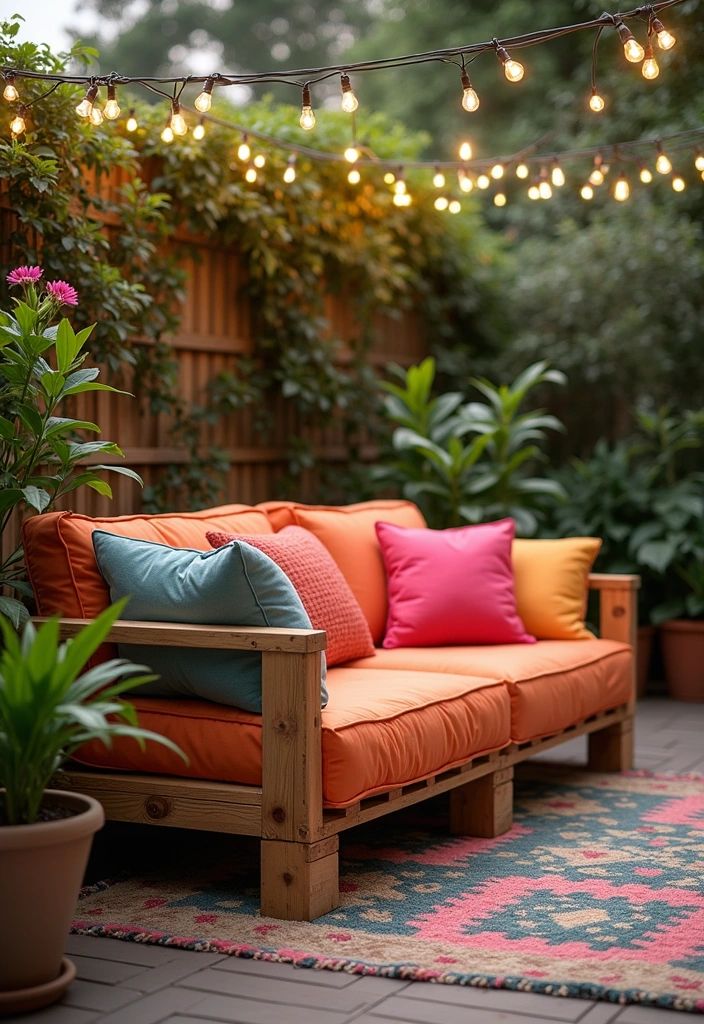
Recycled decor uses materials that have been processed from old products into new items. For example, furniture made from reclaimed wood or metal adds character and cuts down on resource waste. Upcycling means taking old or unused items and transforming them into useful decor, like turning glass jars into candle holders or old pallets into seating.
Using these options often saves money and gives a unique look. It also helps reduce landfill waste by keeping materials in use longer rather than thrown away.
Eco-Conscious Materials
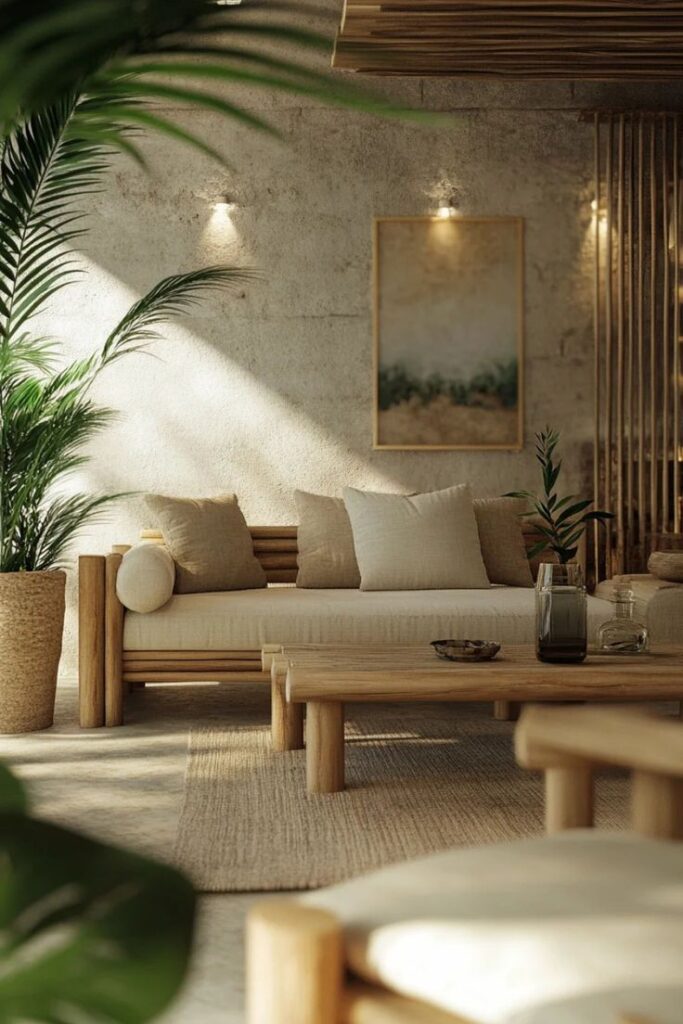
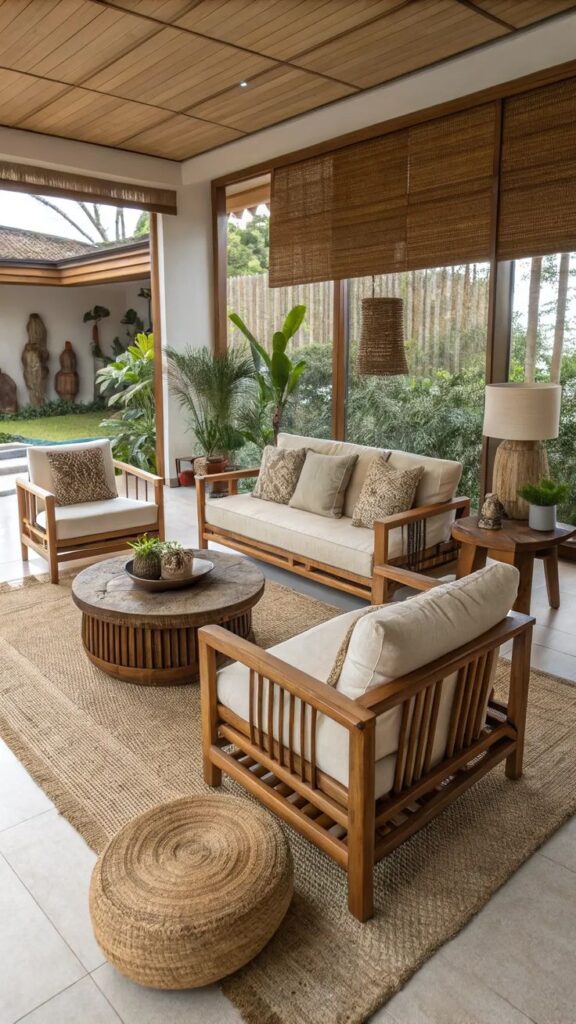
Eco-conscious materials come from renewable or natural sources and break down more easily in the environment. Popular choices include bamboo, which grows fast and is strong, and natural fibers like jute or cotton for cushions and rugs.
Materials like recycled plastic can be durable and weather-resistant but should be chosen carefully to avoid contributing to microplastic pollution. Avoiding treated woods or synthetic chemicals reduces harmful runoff and soil contamination.
Entertaining on Your Balcony or Terrace
Balconies and terraces can become great spaces for gatherings. With careful planning, they offer comfort and convenience. Key points include arranging a dining area and creating a drink spot for easy service.
Outdoor Dining Setup
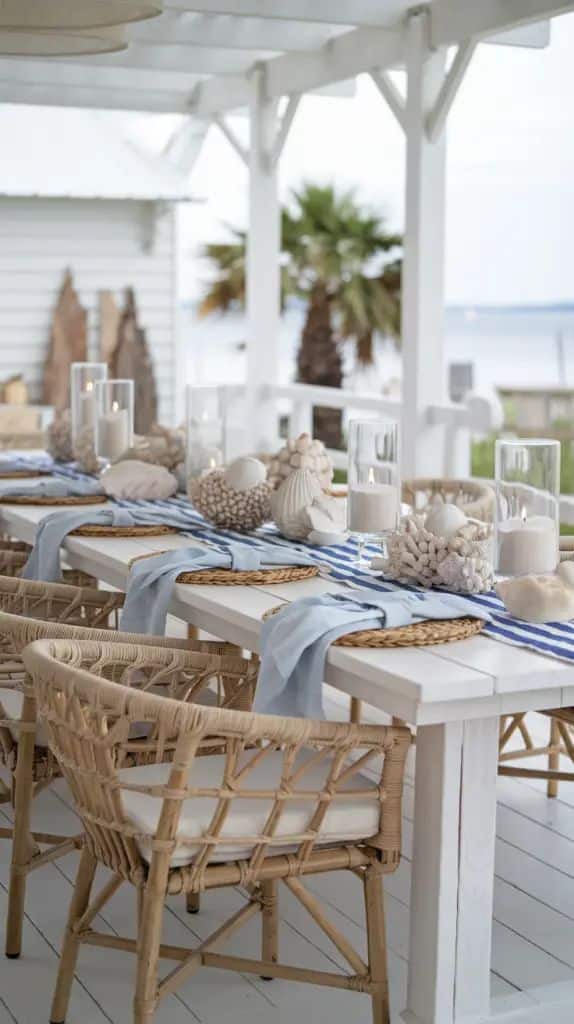
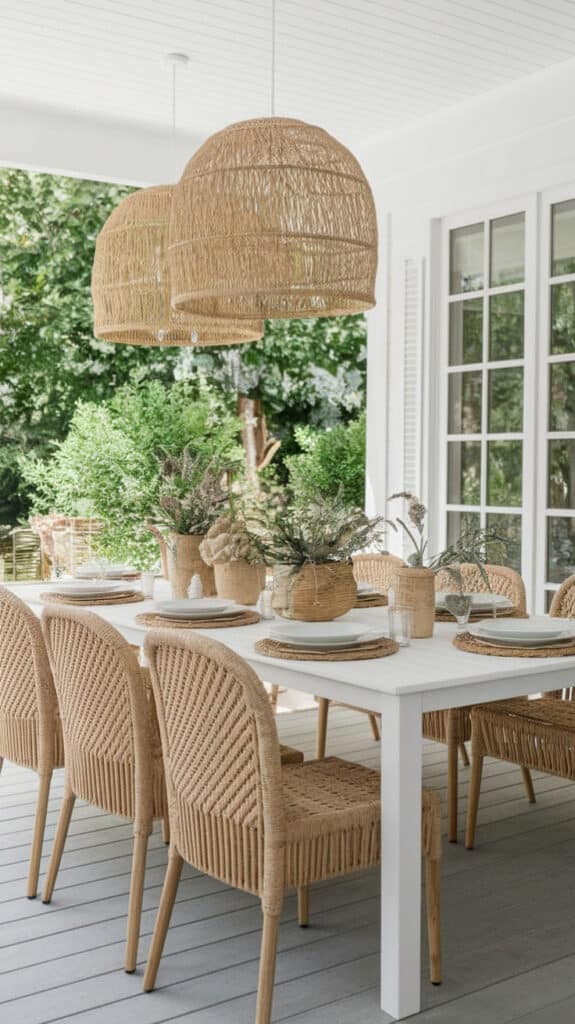
The dining area should maximize space without crowding. Compact tables that fold or extend work well. Chairs should be comfortable but stackable or lightweight for easy moves.
Use weather-resistant materials like metal, treated wood, or plastic. Add cushions for comfort but store them when not in use to avoid damage.
Lighting is important. Fairy lights, lanterns, or small LED lamps create a cozy atmosphere. Choose battery or solar-powered options to avoid tangled cords.
For food, consider a serving tray or small buffet table. These help keep dishes organized. Keep essentials like napkins, plates, and cutlery close at hand.
Setting Up a Beverage Station
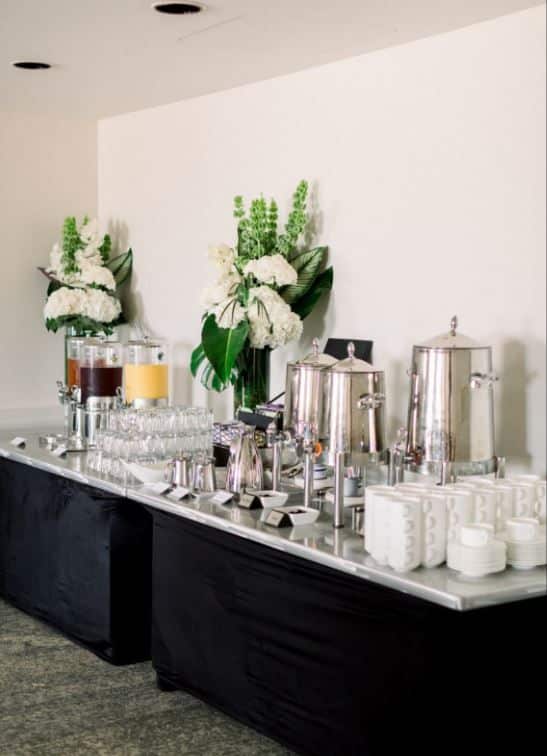
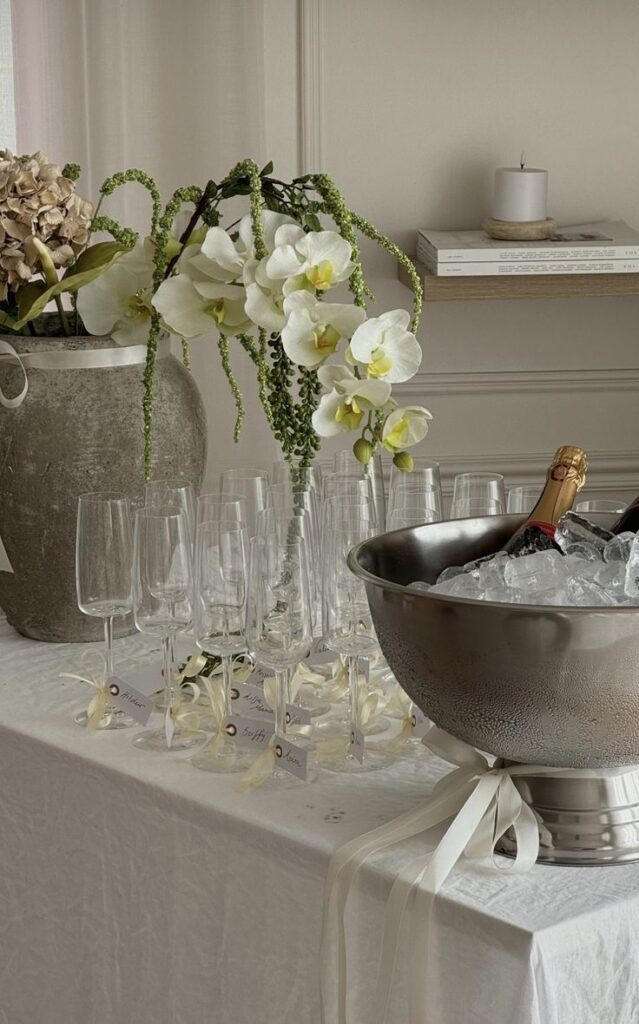
A beverage station should be simple and accessible. Use a small cart or table to hold drinks, glasses, and ice.
Include options such as water, juice, soda, and maybe a bottle of wine or beer. A cooler or insulated container keeps drinks cold without a large fridge.
Add tools like a bottle opener, corkscrew, stirrers, and coasters. A small bucket for used bottles or cans helps keep the area tidy.
Consider a mix of glassware and plastic cups for safety and style. Keep a trash bin nearby to make cleanup easy after guests leave.
Seasonal Maintenance and Storage
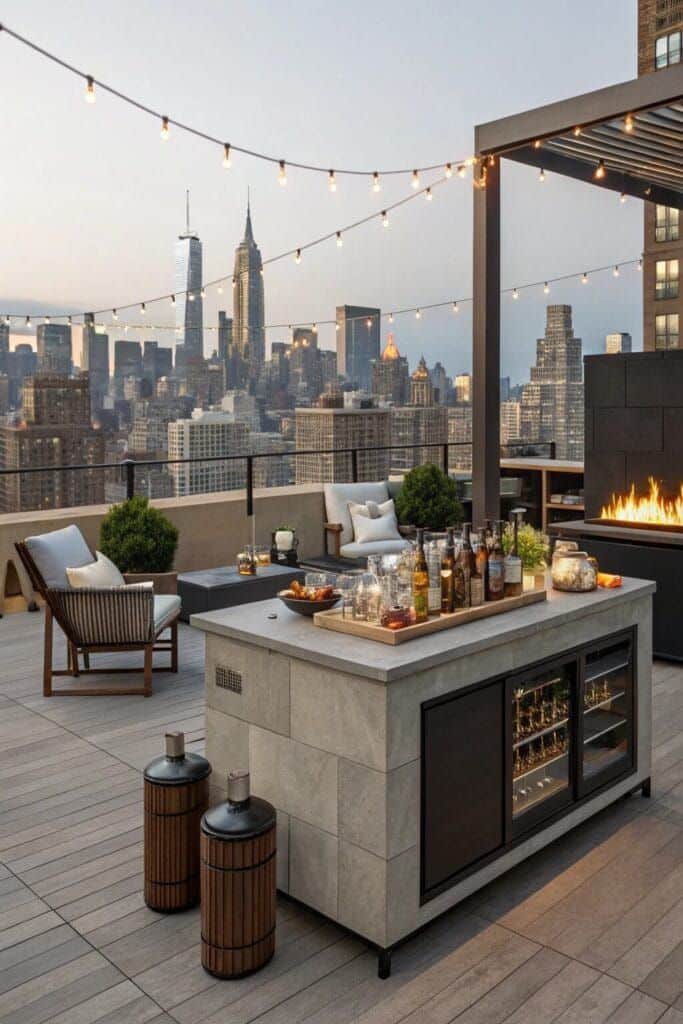
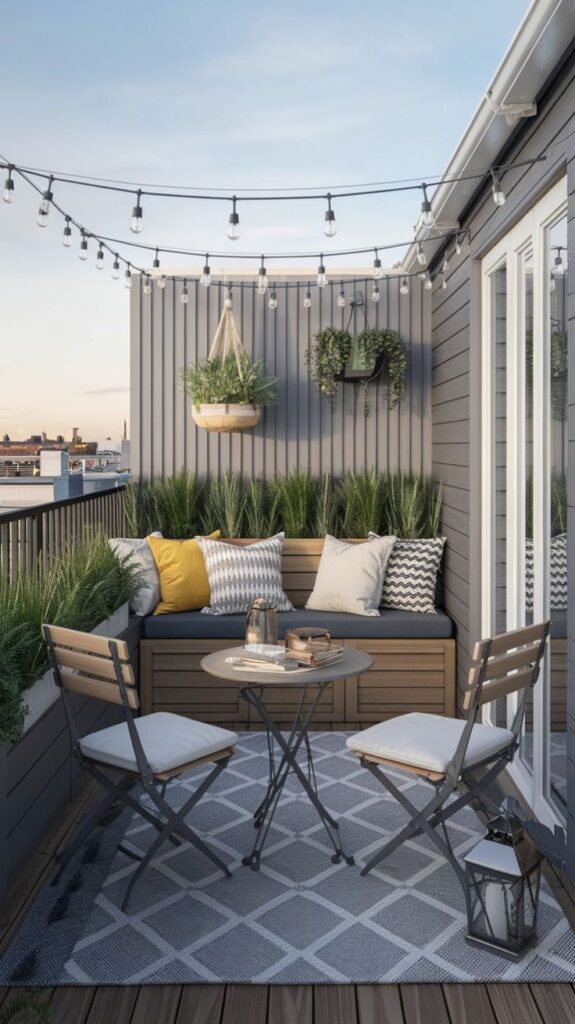
When summer ends, it is important to clean balcony and terrace items. Furniture should be wiped down with a damp cloth to remove dirt and dust. Cushions and fabrics need to be washed or vacuumed to avoid mold.
Before storing, check for any damage. Fix loose screws or torn fabric. This will make items last longer and be ready for next summer.
Store items in a dry, covered place to protect them from rain and cold. Plastic covers can be used for extra protection. Avoid placing heavy objects on top to prevent damage.
Plants may require a different approach. Move potted plants indoors or to a sheltered spot. Trim dead leaves and reduce watering during colder months.
A simple maintenance checklist can help keep track:
| Task | Frequency |
|---|---|
| Clean furniture | After summer |
| Wash cushions | Before storage |
| Inspect for damage | Before storage |
| Protect with covers | Before fall |
| Move sensitive plants | Late fall |
Following these steps helps keep balcony and terrace decor in good condition. Proper care also reduces the need for costly repairs or replacements.
- 1share
- Facebook0
- Pinterest1
- Twitter0
- Reddit0

